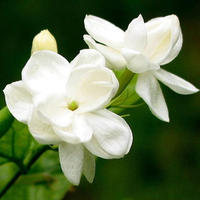The best climbing plants for adding depth, colour, and interest to your garden
From joyful bougainvillea to the heady scent of jasmine, these climbing plants will elevate your outdoor space instantly
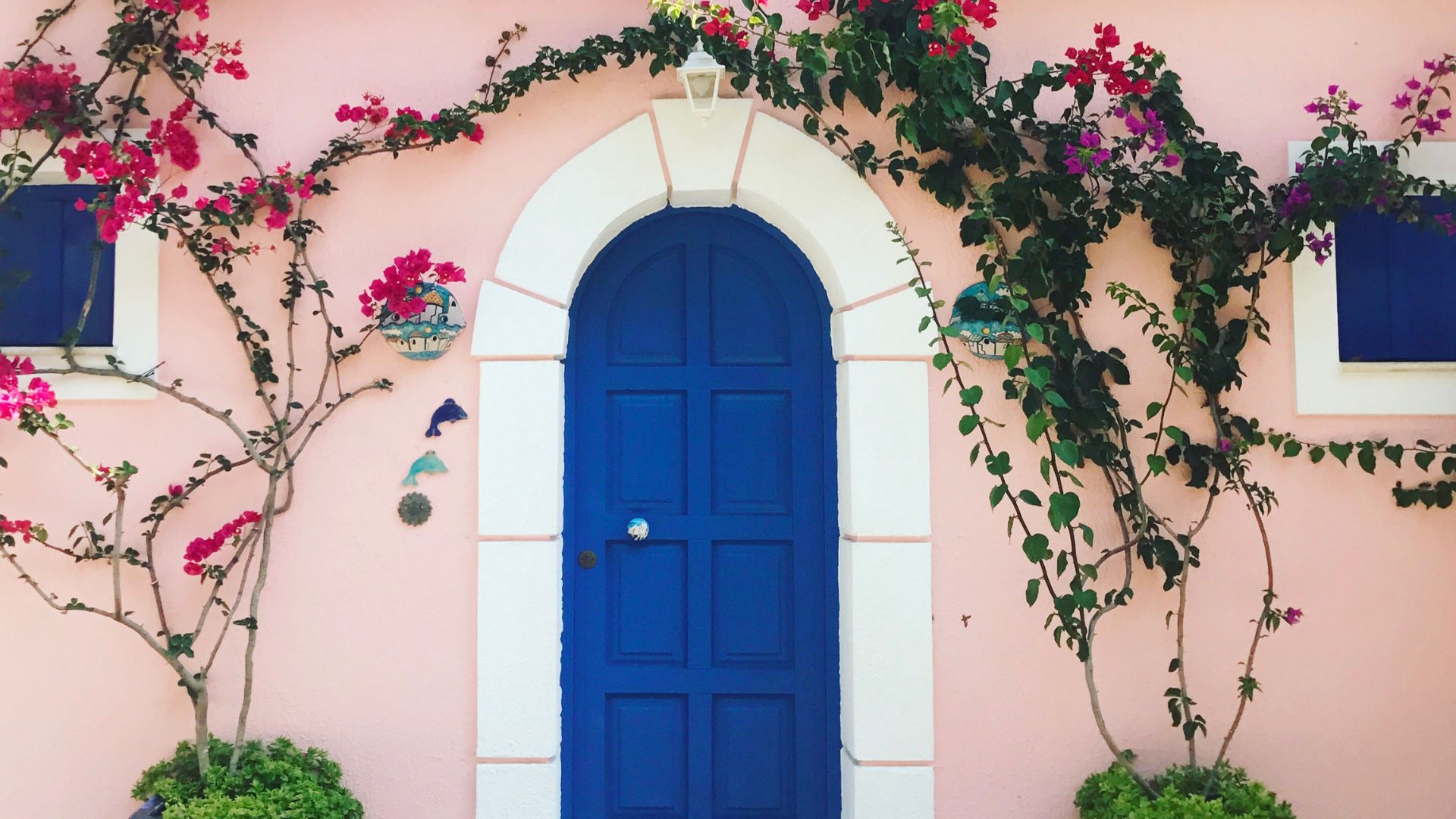

Ideal for creating a shaded canopy area, covering unsightly walls or fences, or simply adding a fast-growing splash of colour, this carefully curated edit details the best and most beautiful climbing plants worth adding to your garden.
From perennials that'll transform cottage gardens to creepers that change colour over months, there's something for every space, big or small.
Happily, some of these picks are also the best plants for pollinators and among the best plants for privacy so they're versatile shrubs!
The best climbing plants for adding depth, colour, and interest to your garden
Star Jasmine
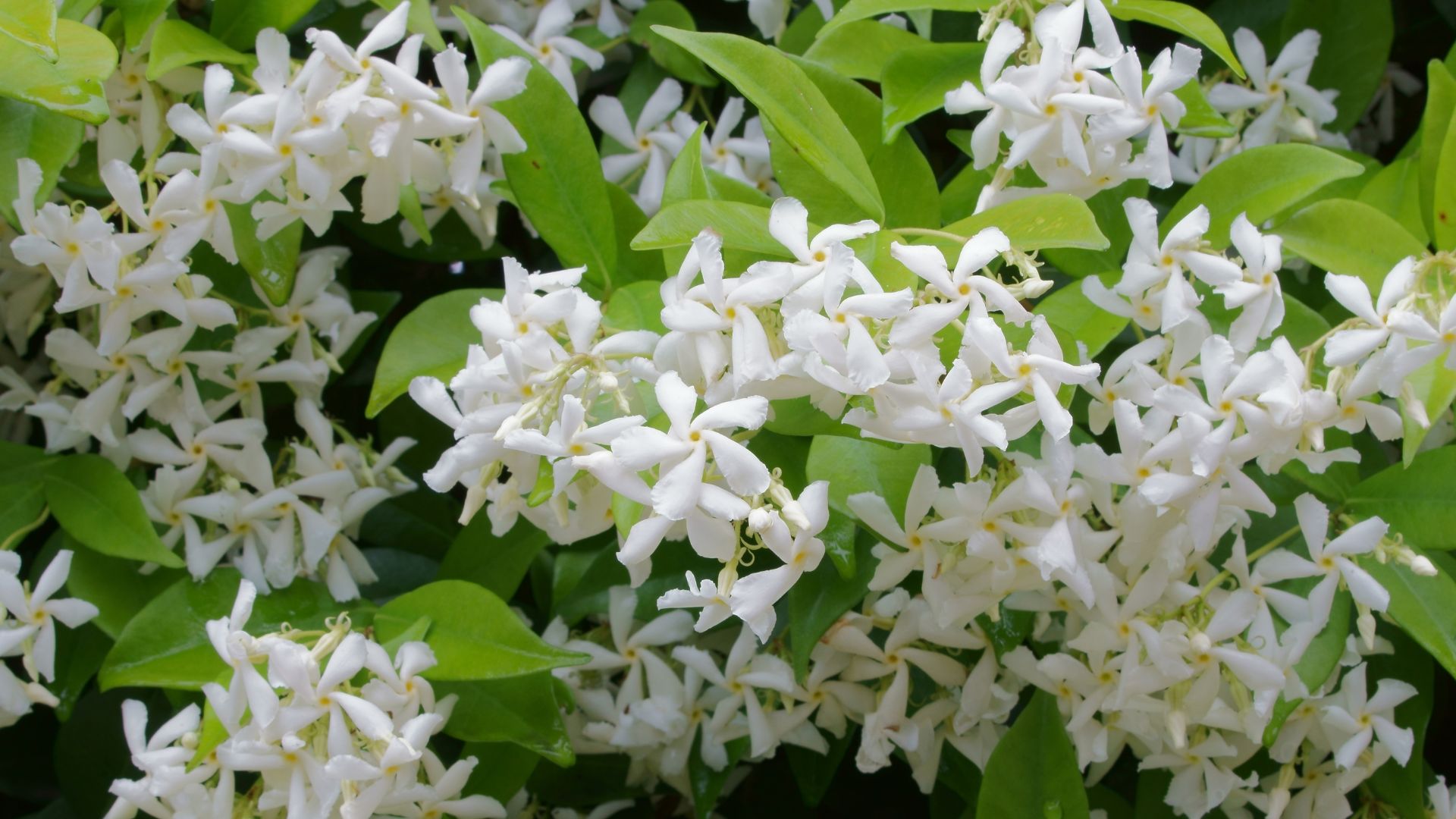
Evoking a sense of wonder, the scent of jasmine instantly transports anyone who crosses its path to the tropics. As well as being highly fragranced, star jasmine is also extremely fast-growing and tolerates most climates. The hardy plant flowers around June time creating a dramatic, romantic display that’s not only pleasing to the eyes but to the nose too thanks to its unmistakable scent.
Jasmine, £2.59, Amazon
Grown for its masses of highly scented white flowers, Jasmin should be cut back gently in spring to keep it looking trim and tidy.
Elephant Creeper

Native to the Indian subcontinent, the delightfully named elephant creeper features huge lilac blooms. Although it can be slightly invasive it’s a good option for larger spaces or for growing around large trees since it’s perennial and fairly striking. Interestingly, in traditional Ayurvedic medicine, the root is used to soothe nerve issues although we don’t recommend trying this at home.
Bougainvillea
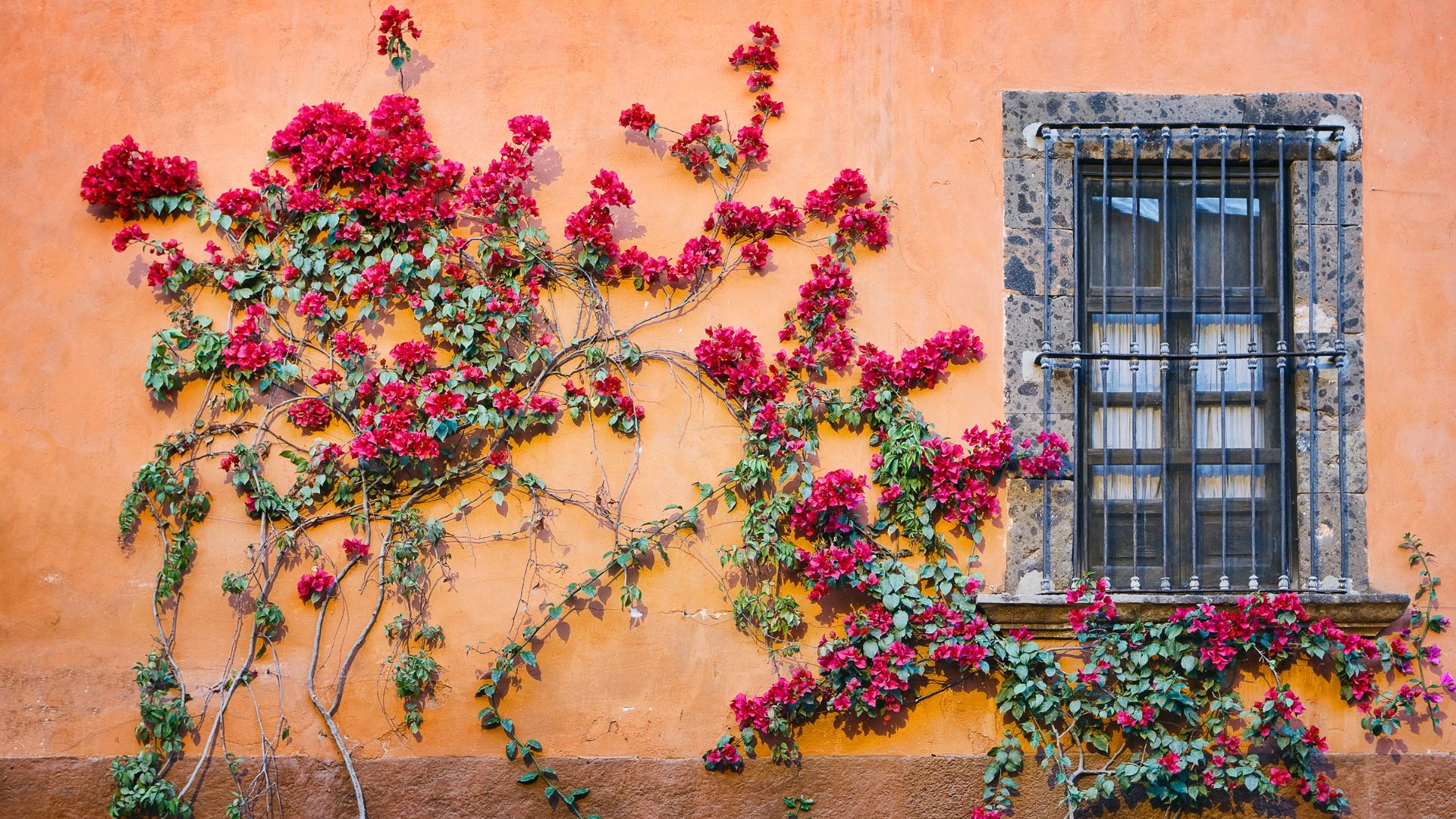
One of the most attractive climbing plants around, bougainvillaea with its masses of vibrant pink, orange, lilac, and red flowers will undoubtedly add an element of excitement to your garden. Best avoided if you live in particularly chilly areas of the UK, this fabulous plant detests frost but can be planted in pots and brought indoors if you have a spacious greenhouse or conservatory.
Morning Glory
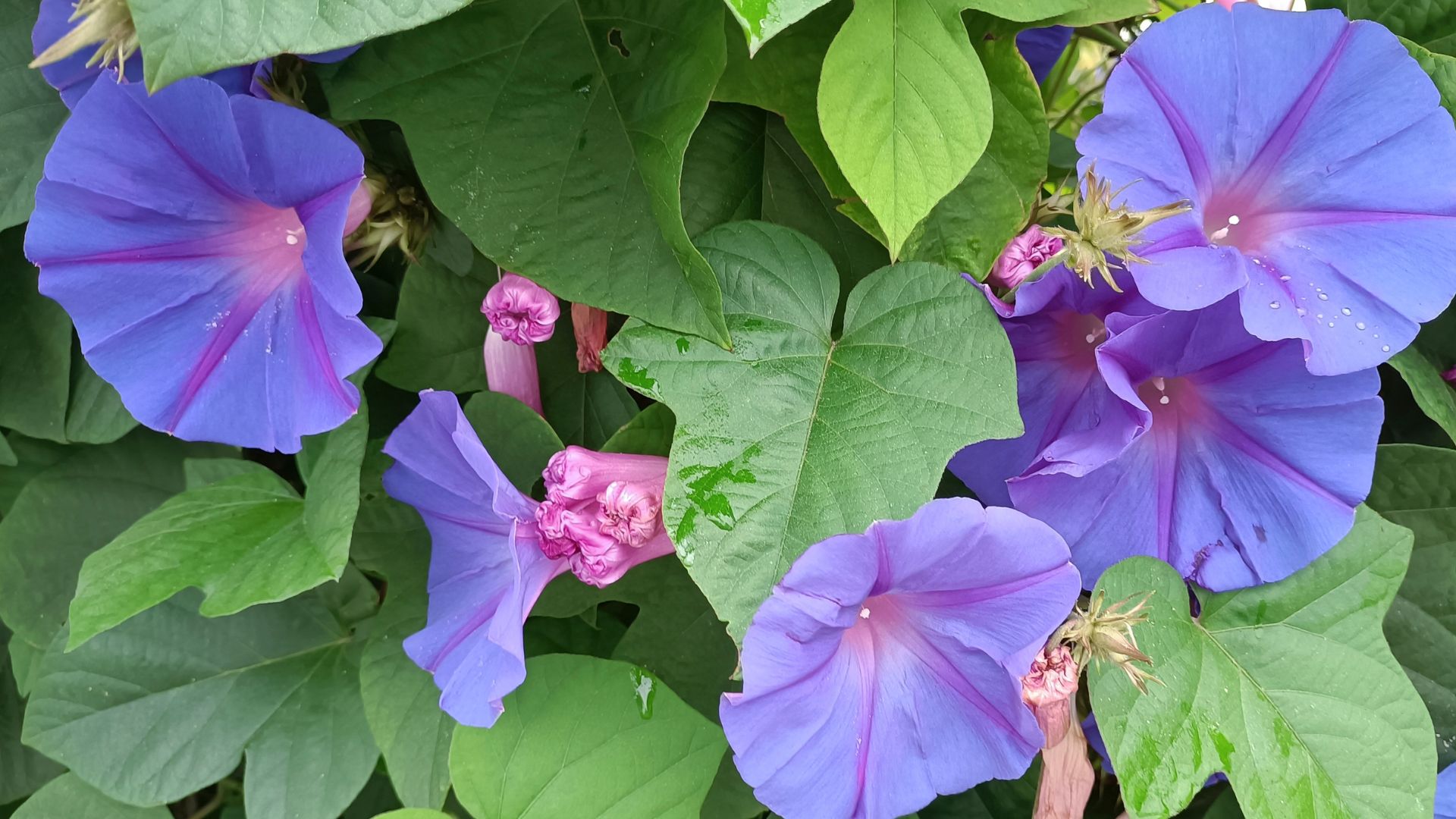
The large heart-shaped leaves of the morning glory look fabulous when trained along a wooden trellis and can be used to section off different parts of your garden. With several varieties to look out for including a pale blue summer flowering version, and plenty of deep purple flowering plants, it’s easy to find morning glory that will fit in with your existing garden theme.
Sign up for the woman&home newsletter
Sign up to our free daily email for the latest royal and entertainment news, interesting opinion, expert advice on styling and beauty trends, and no-nonsense guides to the health and wellness questions you want answered.
Creeping Fig
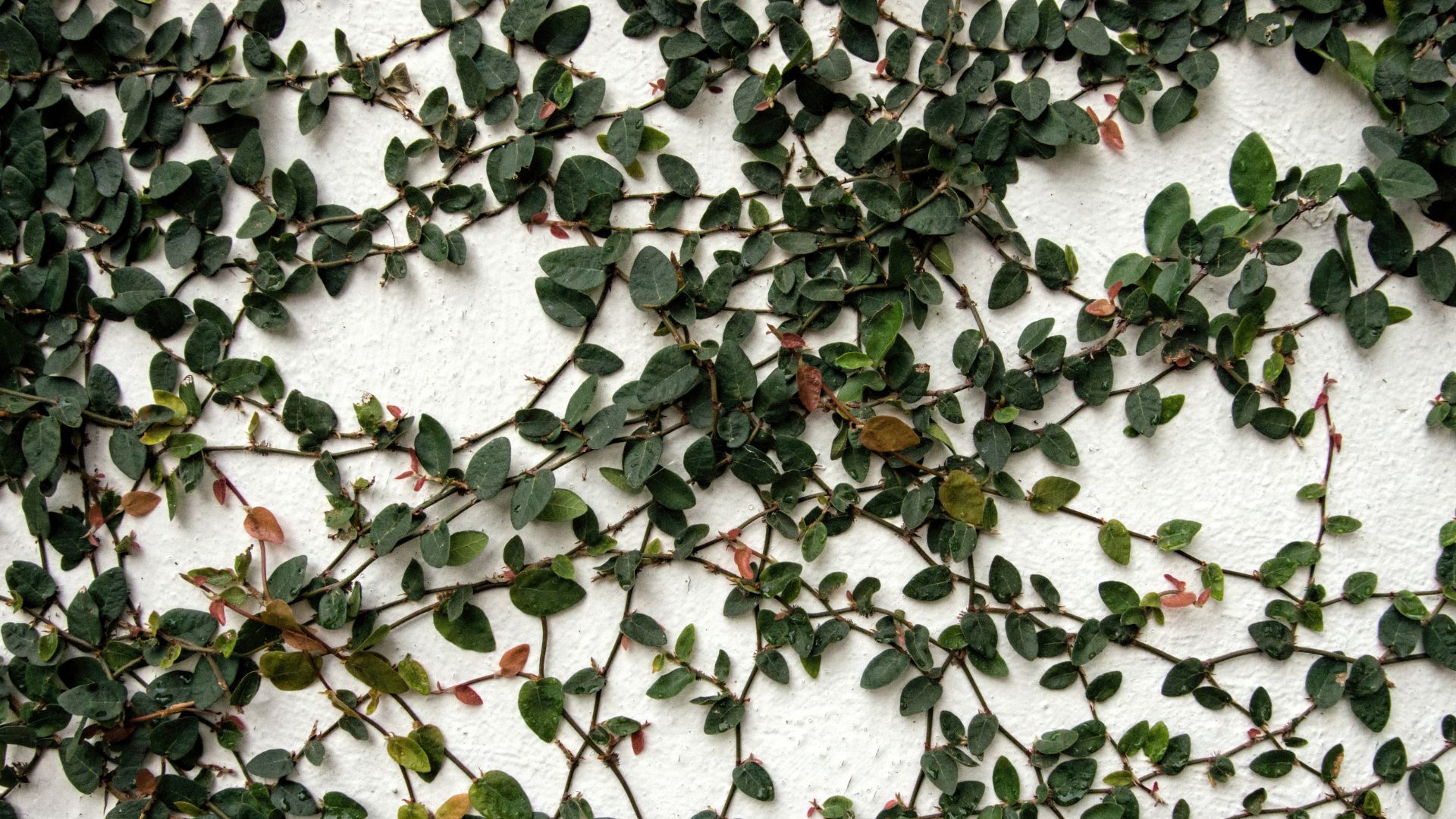
The dense green leaves of the creeping fig make it a great option for covering unsightly walls. Since it grows fast and can climb to 40 feet, it’s ideal for very large spaces so it's not a great choice if you want to maximise a small garden.
Bleeding Heart Vine
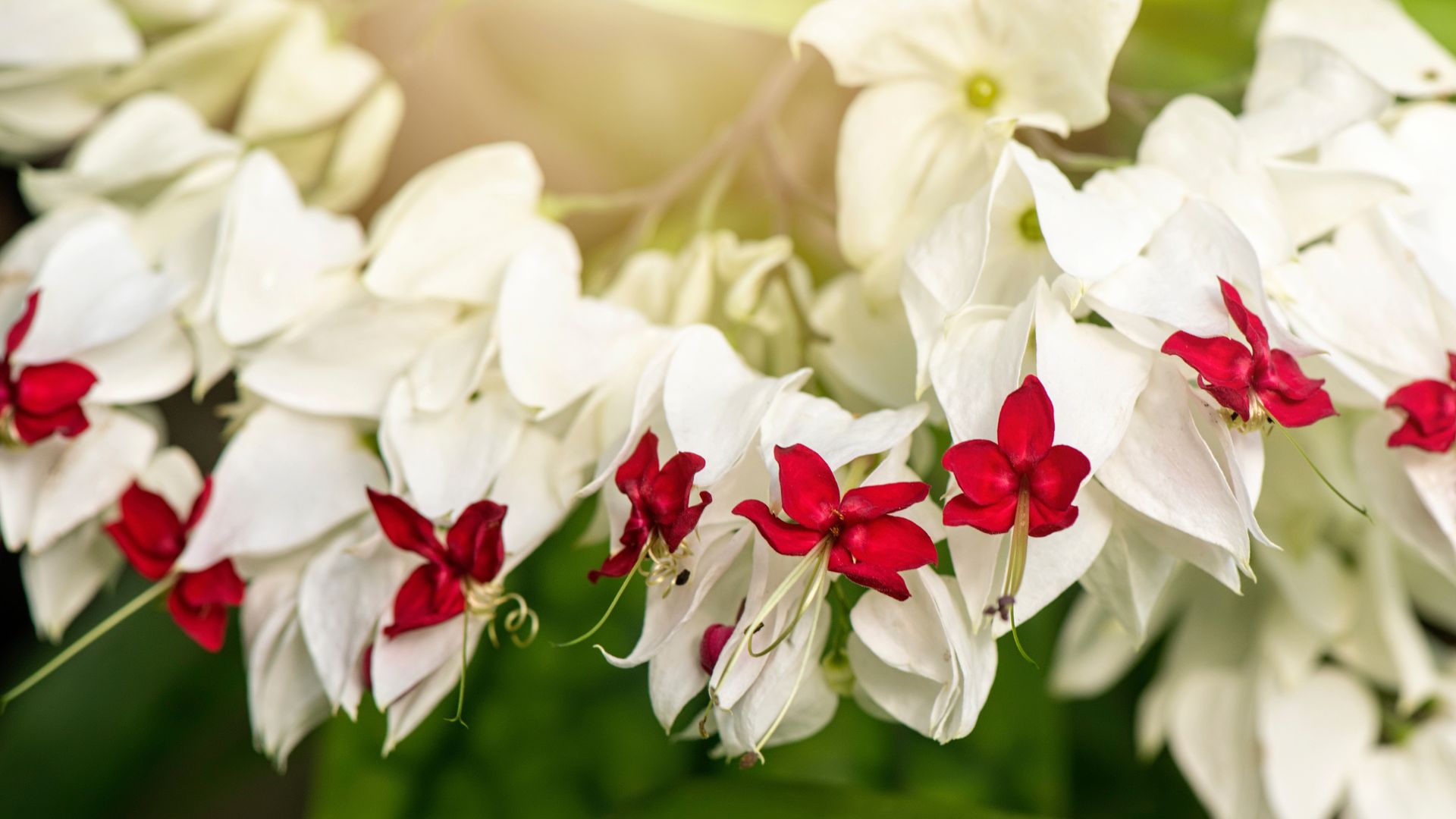
With a name straight out of a poetry book, the Bleeding Heart is an easy-to-grow climber that produces endless delicate white and red-pink flowers. Well-drained soil is essential, but it’s also possible to grow Bleeding Heart in a container. Toxic to humans and animals this striking plant is toxic to dogs and cats so it's best avoided if you have pets.
Honeysuckle
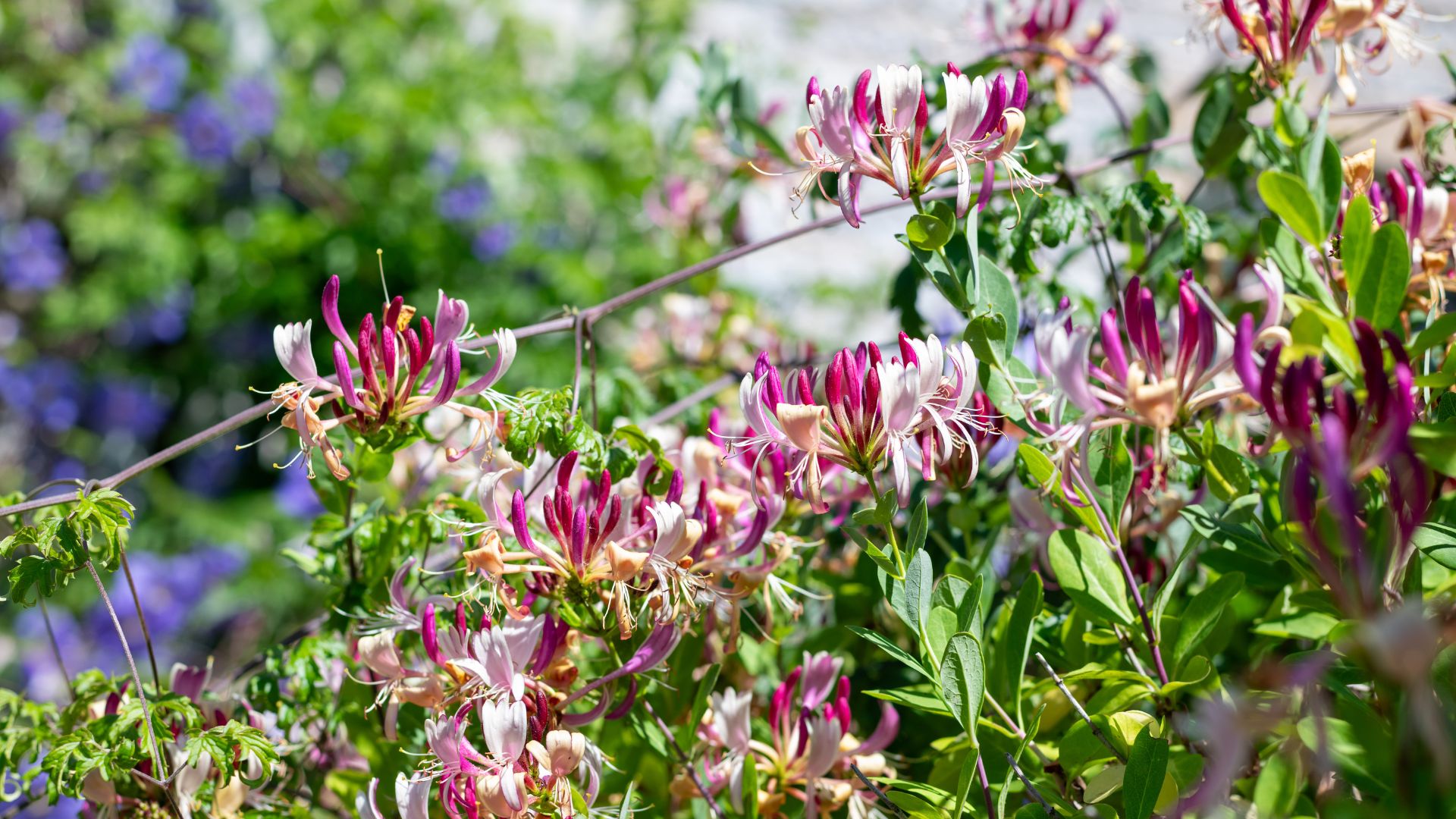
The seductive scent of honeysuckle is at its strongest around dusk, making this delightful climber ideal for planting around outdoor dining areas so you can really appreciate its scent as you dine. Available in a range of colours, from sunrise shades to deep corals it prefers sunny spots and will flower over summer months.
Variegated Kiwi Vine

In terms of foliage, the variegated kiwi is one of the prettiest. With large leaves that fade from green to cream, to pale pink it’s a great option if you’re looking to add interest to your space. The hardy vine prefers sunny spots, but beware, cats love it. They’ve been known to destroy the vine by chewing on it.
Wisteria

Ah, whimsical, romantic, ethereal wisteria. While the flowering period is short-lived there’s something truly magnificent about the lilac-coloured tumbling blooms that look best trailing against walls and fences. Wisteria is a true cottage garden staple, plant yours between October and April.
Climbing Rose
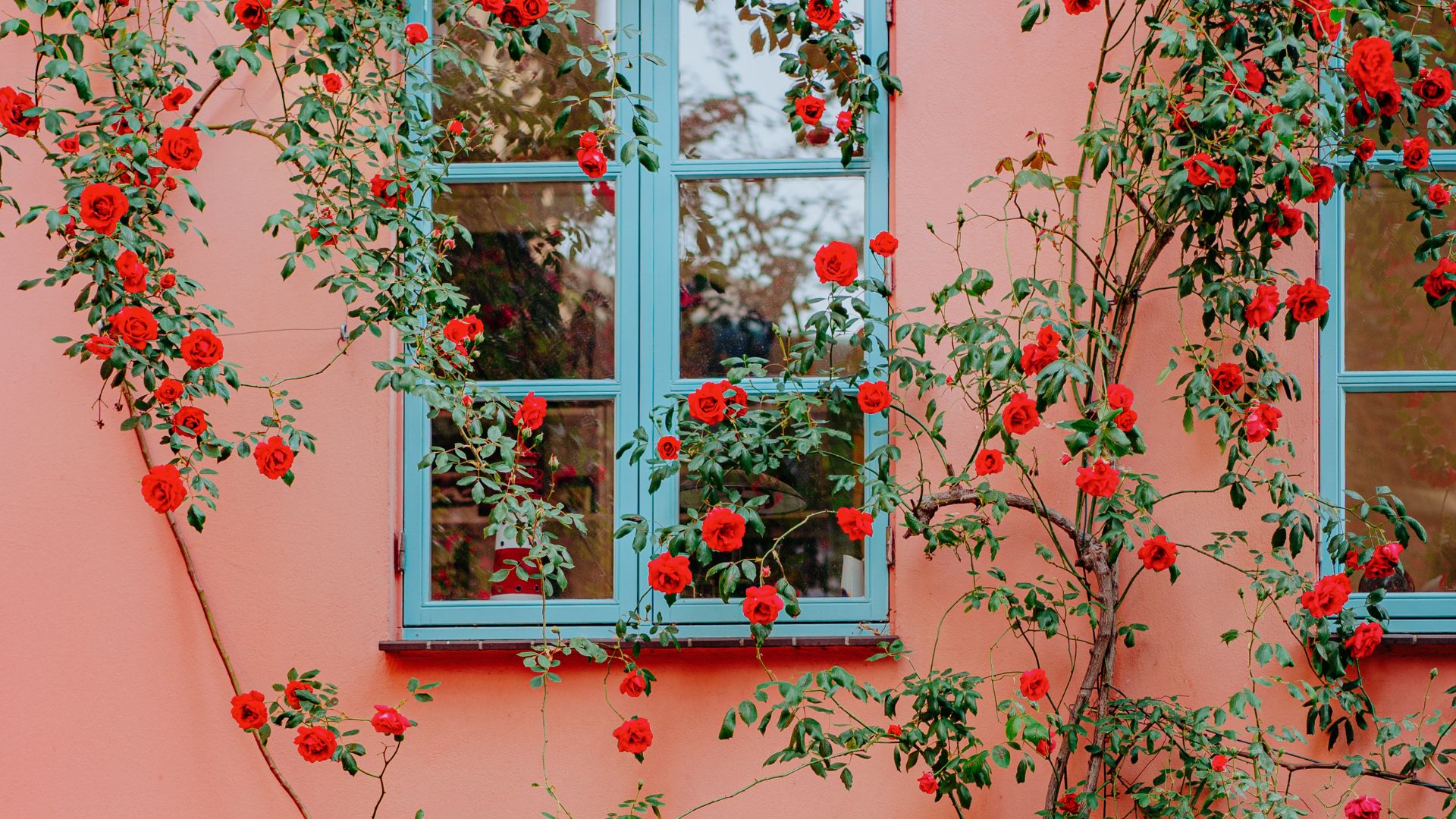
The climbing rose, with its large pretty flowers is the perfect plant for bringing height and intense colour to a wild or cottage garden - often creating a whole wall of flowers - and sometimes with the bonus of a delicate fragrance. Prune your roses in winter to reap the benefits come spring.
Clematis
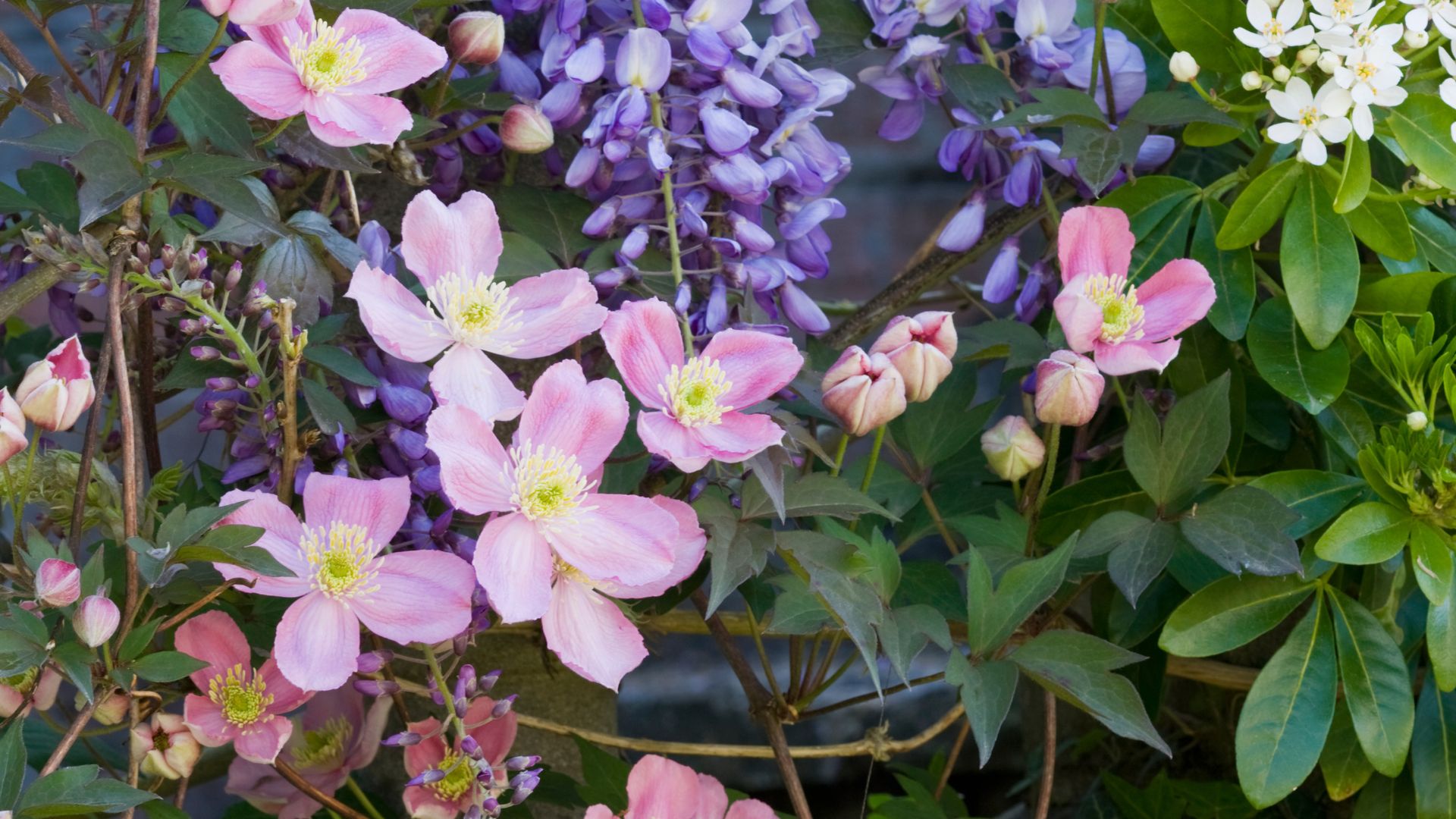
There are literally hundreds of species of clematis, and while many have a slightly outdated reputation, others, like the Old Man’s Beard, have truly iconic flowers that are a welcome addition to any garden, big or small.
Bengal Trumpet
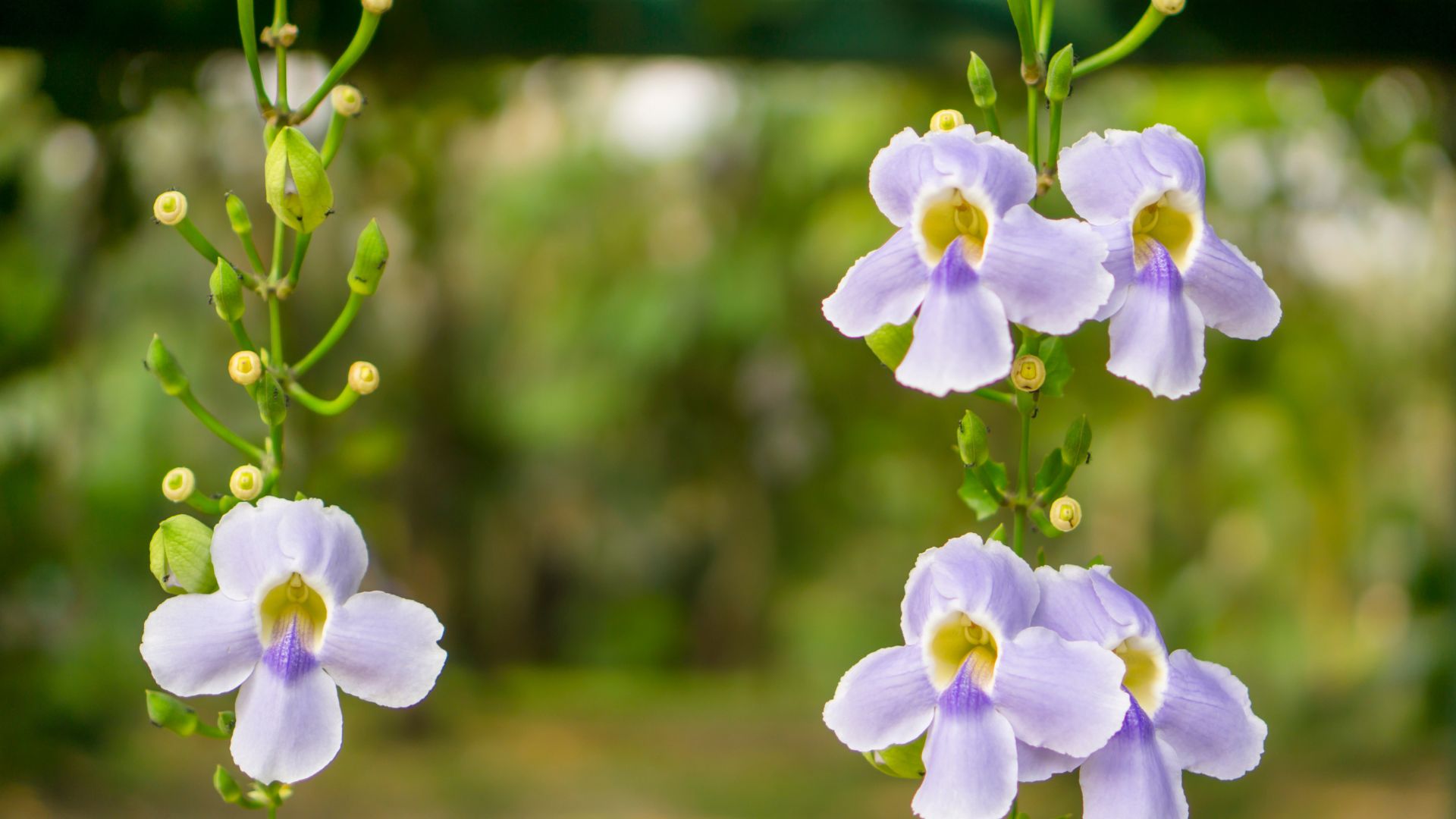
Otherwise known as the blue trumpet vine, the evergreen Bengal Trumpet features pale blue and yellow flowers and loves sunny spots. After planting they may take a couple of years to bloom but if you bear with your creeper you’ll be rewarded with a dramatic display come June.
Passionflower
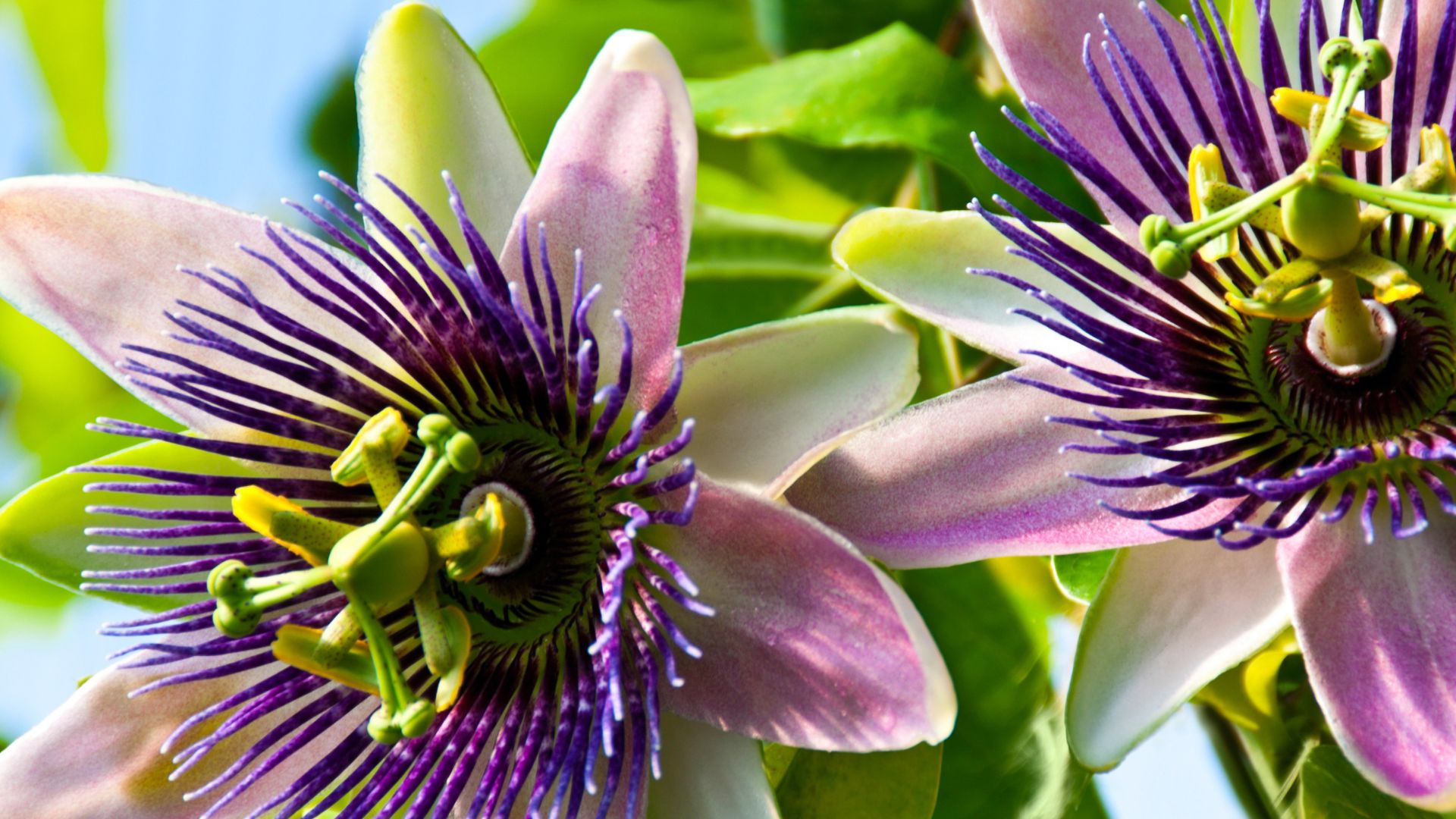
One of nature’s most delectable creations, the passionflower is a true work of art. The intricate flowers are so interesting that this climbing plant should take pride of place in your garden. They need a lot of full sun but tolerate damp and acidic soil.
Cup and Saucer Vine
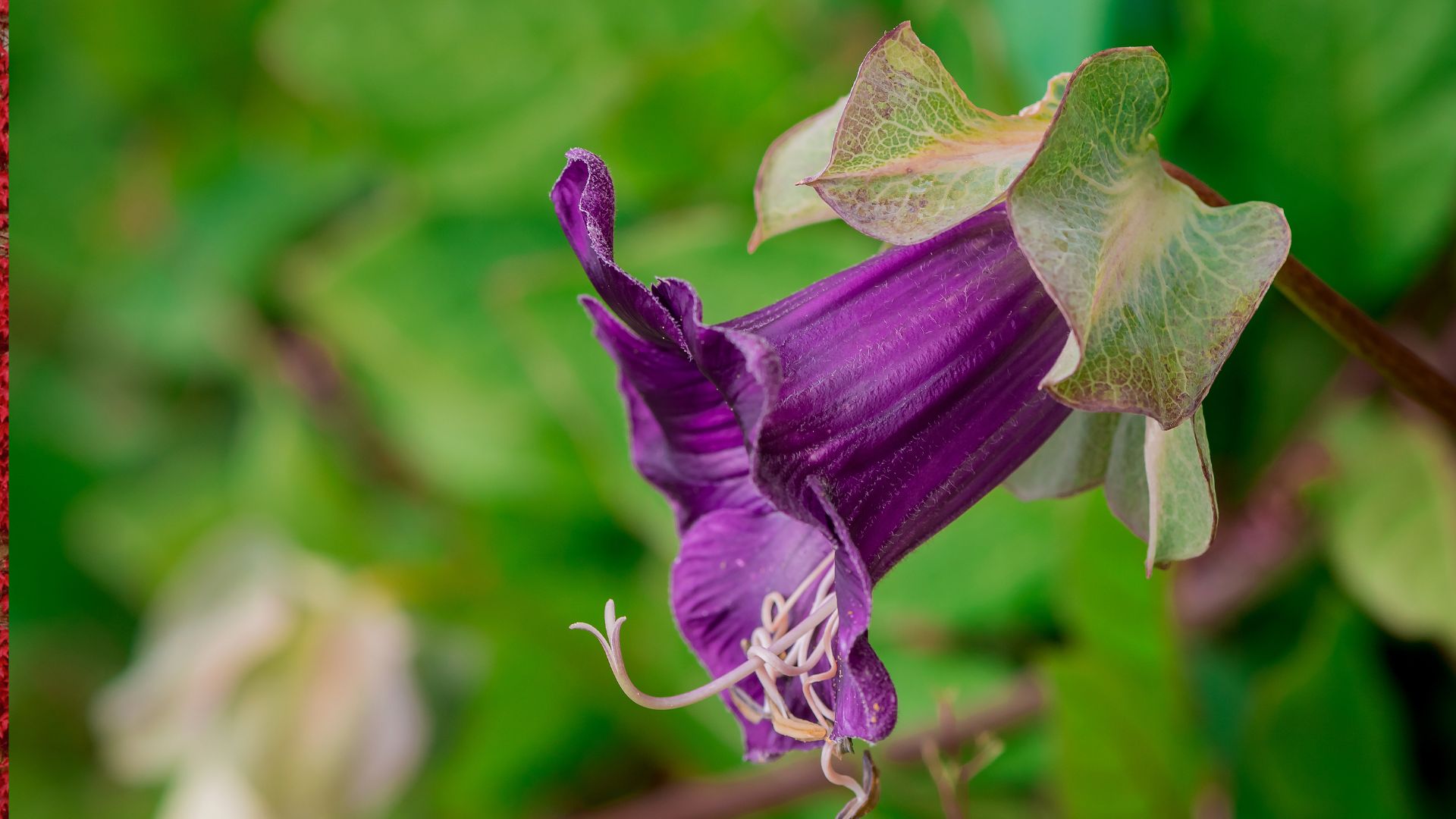
As part of the phlox family and native to Mexico this perennial climber features flowers that look like cups and saucers, hence the name. They dislike the shade so should only be planted if your garden gets full sun for most of the day.
Virginia Creeper
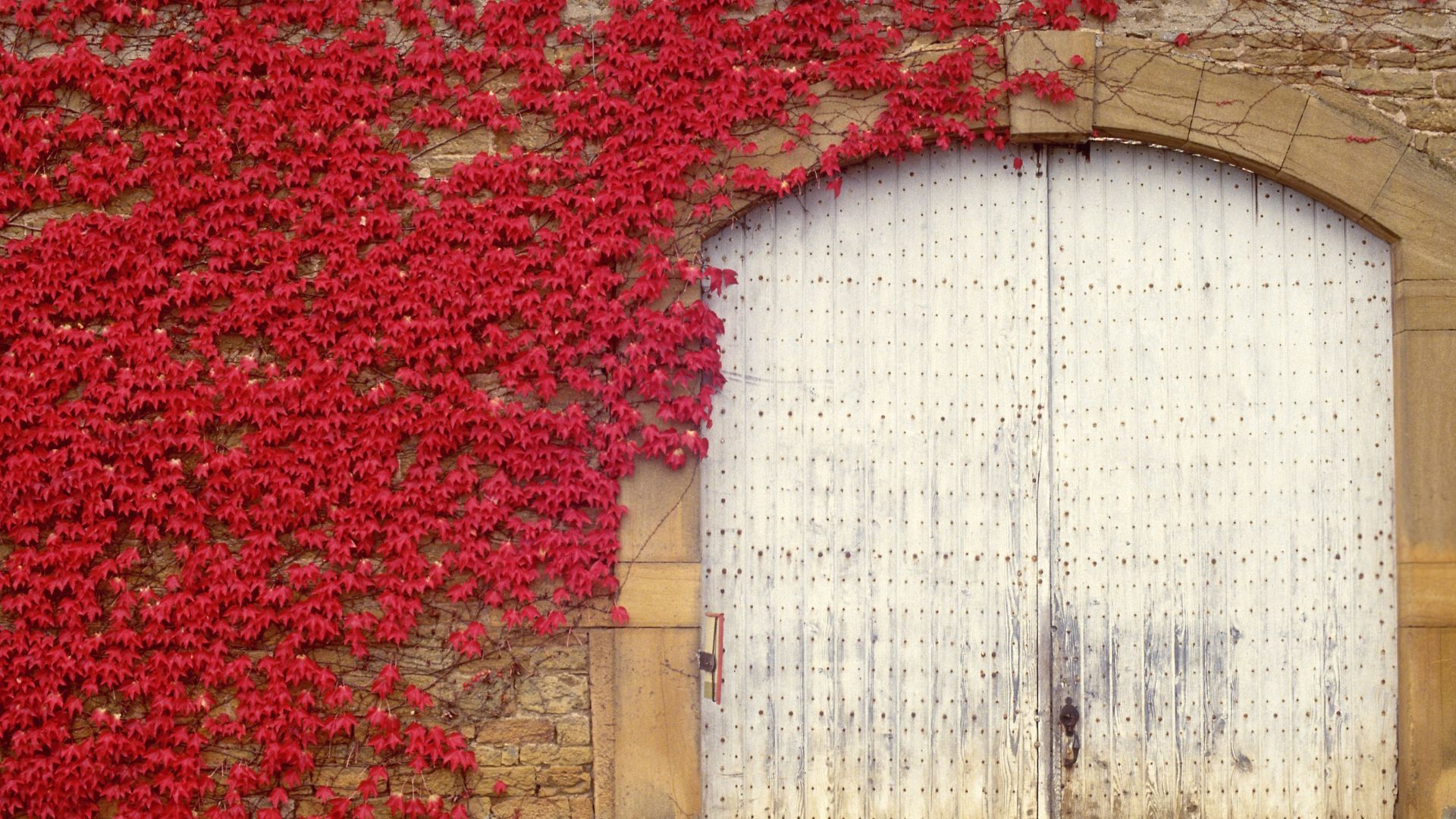
One of the most striking climbing plants for foliage this delightful vine features large leaves that morph from bright green to red and orange during autumn. A great option for transforming the front of your home if it’s looking a little tired or dull.
Chocolate Vine
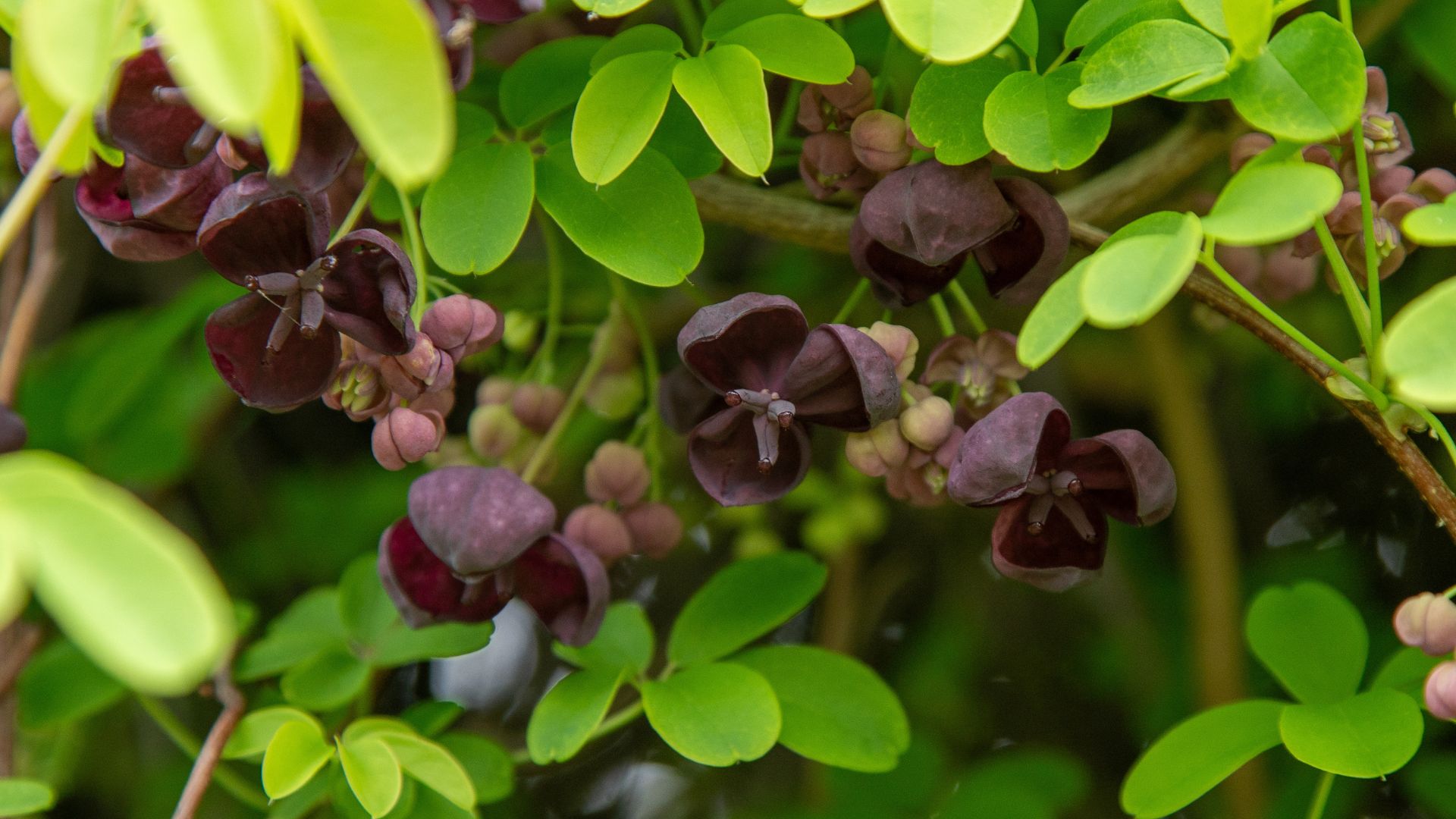
If the chocolate-scented flowers don’t impress the chocolate vine also produces a fragrant fruit that resembles dragon fruit. They prefer soil with good drainage and since they’re pretty hardy they’re a good option for most UK gardens.
Mandevilla
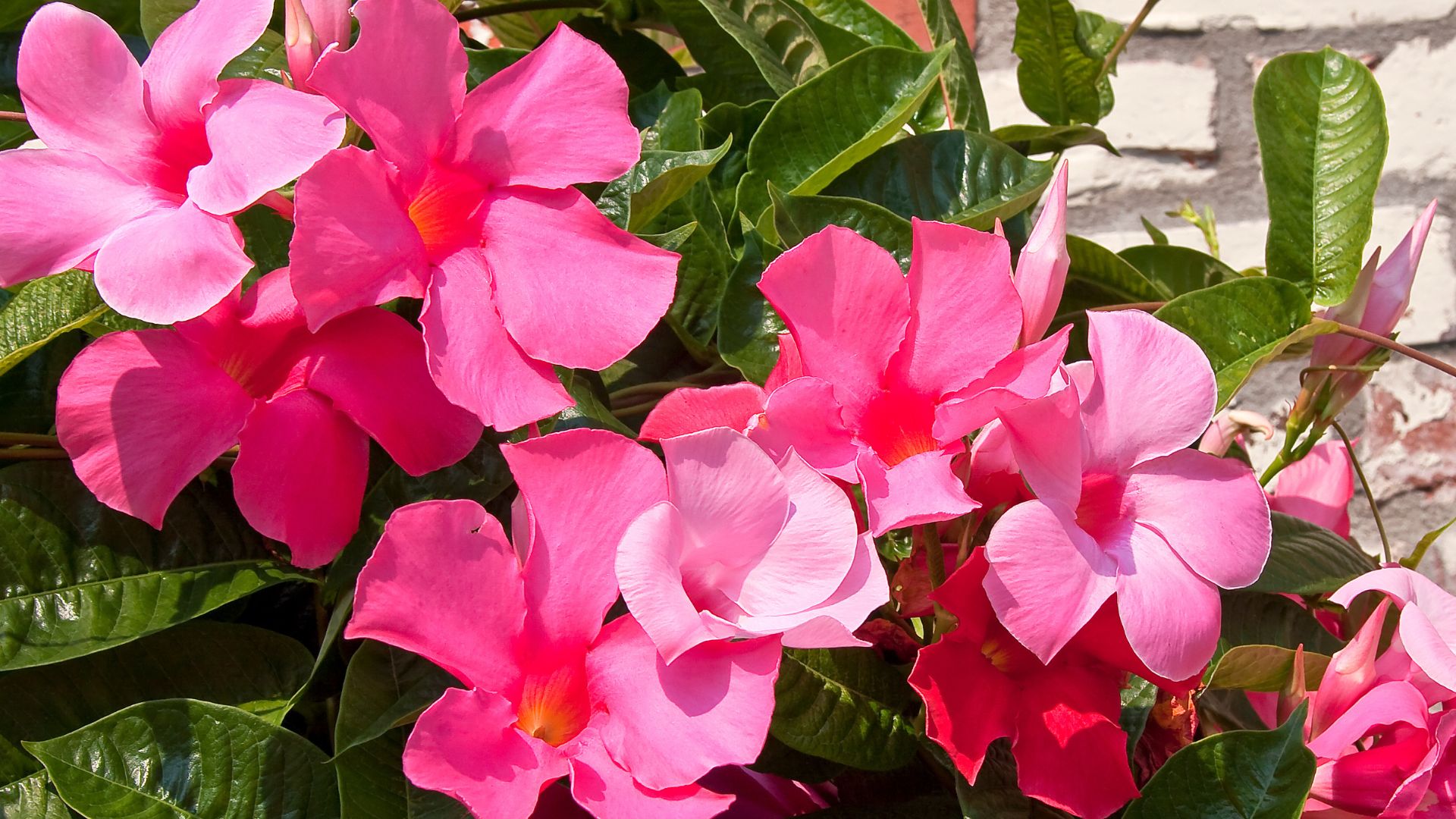
This tropical vine, also known as rock trumpet is super low maintenance and flowers like crazy but it craves sun so it's best avoided if you live in chillier areas of the UK. With large, showy blooms it’s available in shades of pink, red, and white.
Snapdragon Vine
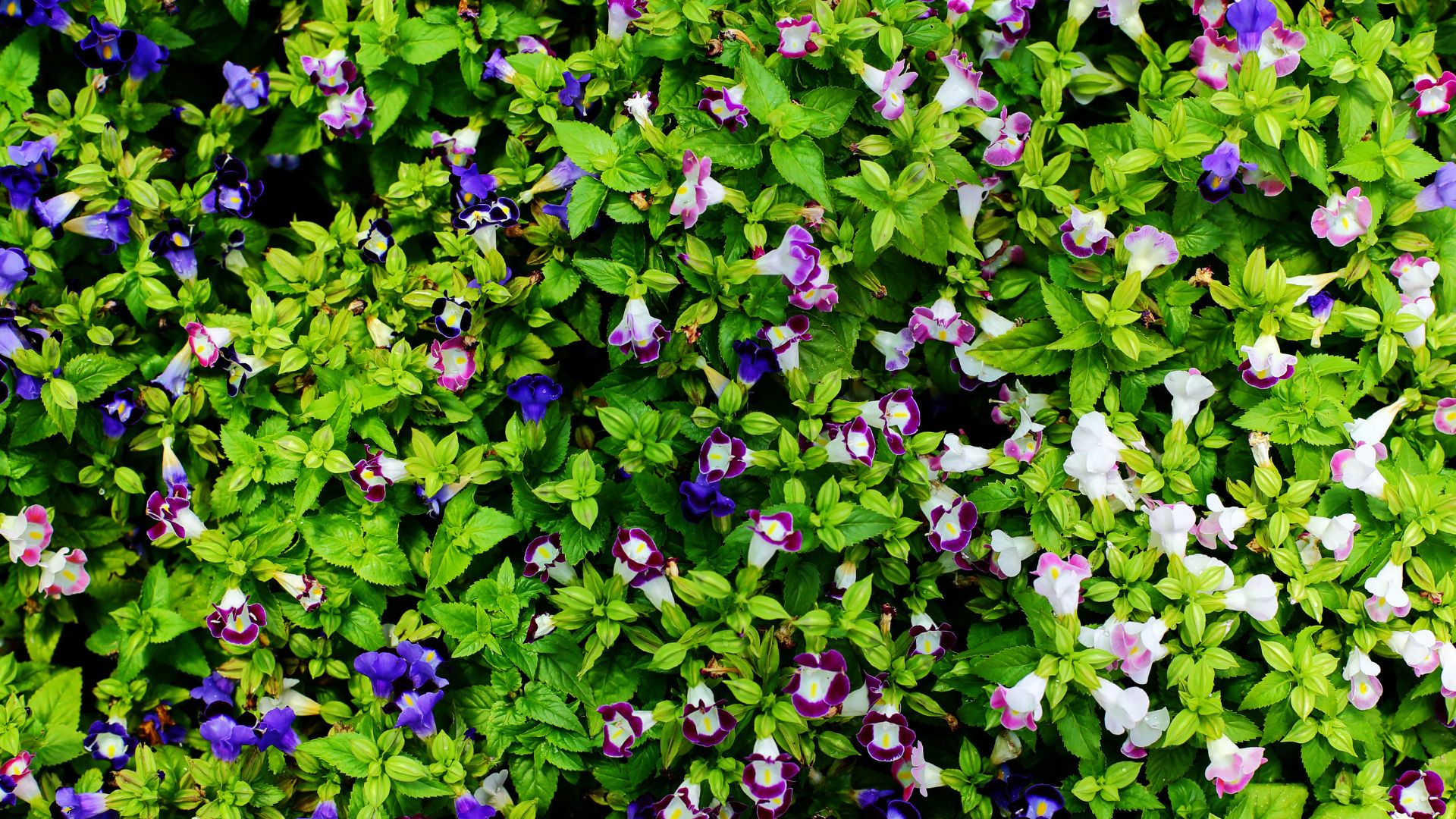
Ideal for trailing along arbors or fences, this unique vine prefers well-drained moist soil and full sun. Its tubular flowers come in many colours including pale pink, indigo blue, white, and violet.
Climbing Hydrangea
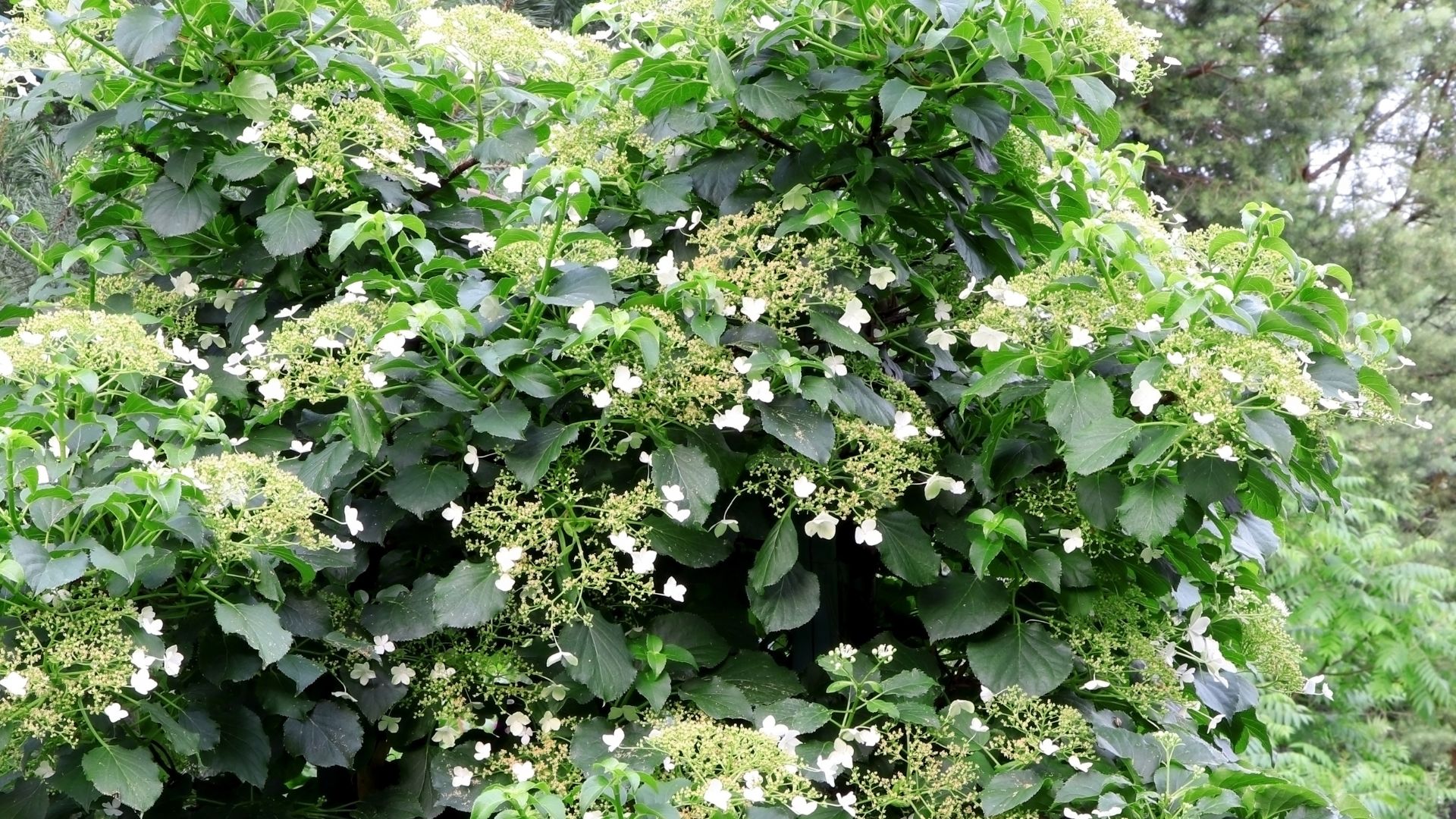
Versatile and fragrant, the climbing hydrangea, with its masses of delicate white flowers, provides a sophisticated display with year-round interest. Since they’re able to tolerate a bit of shade climbing hydrangeas are a good option for most gardens.
Moonflower
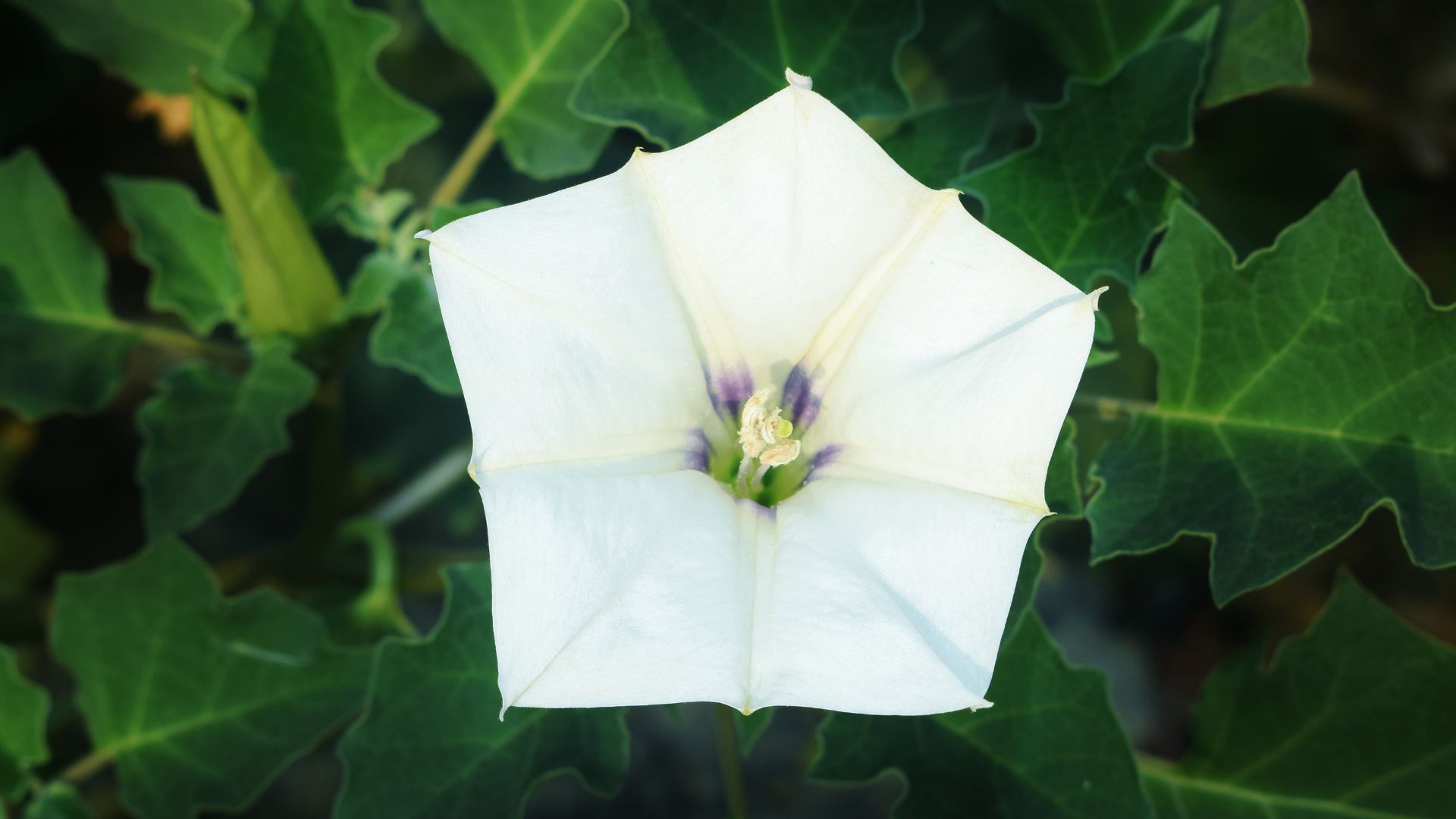
This interesting creeper flowers under the fall of darkness, hence the name, moonflower. The bold white flowers come alive at dusk making it the perfect plant for having around outdoor dining spaces.
Black-Eyed Susan

Striking black-eyed susan shows off with pretty orange flowers dotted with a central black eye. The fast-growing climber blooms for extended periods, and is super easy to care for.
Common Grape

It’s easier than you might imagine to grow the common grapevine in the UK, especially if you have a greenhouse. As one of the best climbing plants they not only provide gorgeous leaves but will bear fruit from September to October - making it a great sustainable choice!
Trumpet Vine
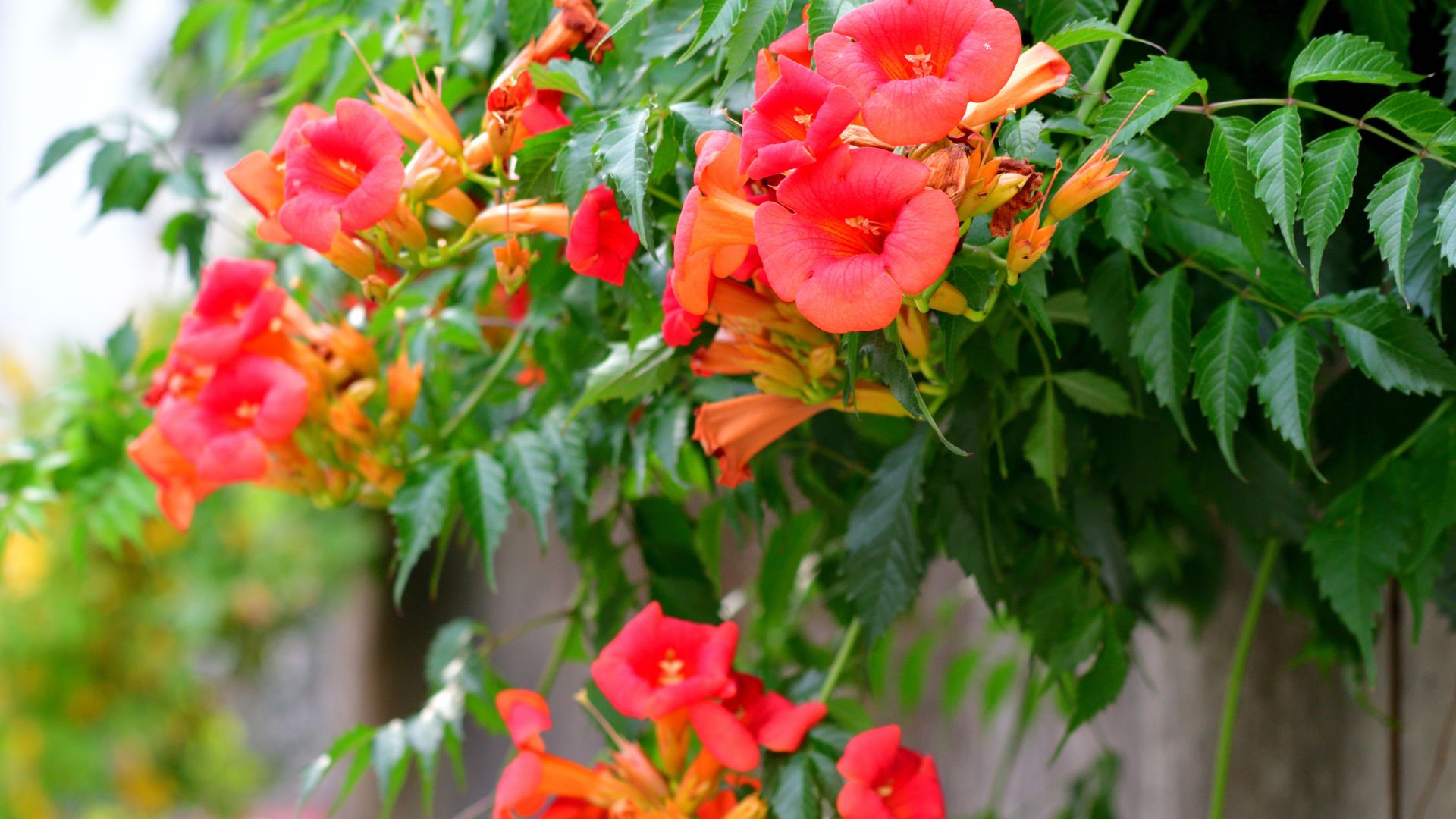
Overflowing with clusters of trumpet-shaped bright orange flowers this showy vine is the best plant for livening up your garden with dense colour - a key garden trend that never gets old. They grow best in mild climates and thrive in full sun.
Sweet Pea
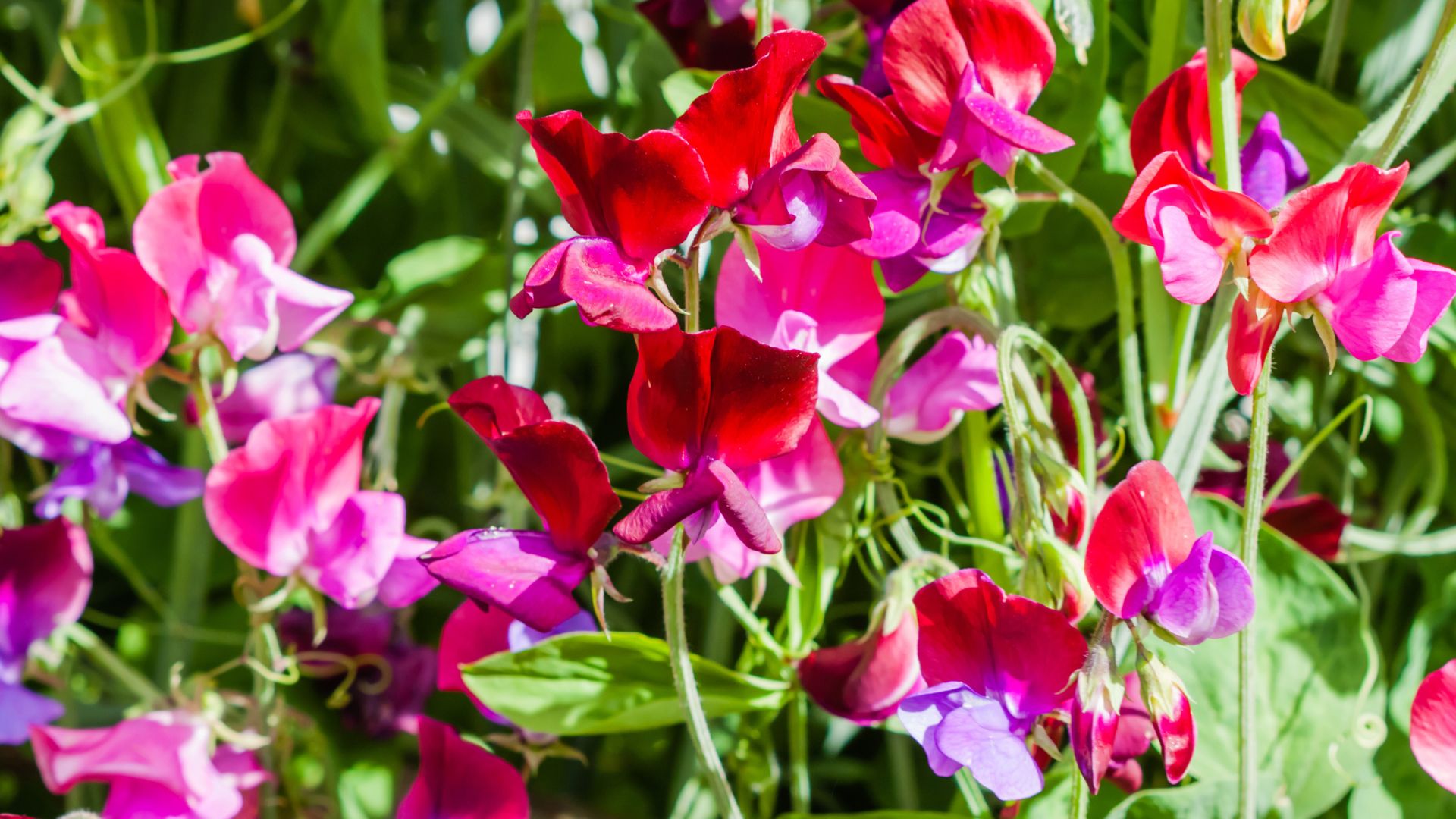
Adding vibrancy to gardens during summer months this annual plant will last just one season but the effort is worth the reward since the delicate flowers come in a multitude of pretty hues, including deep crimson, hot pink, and blush.
Snail Vine
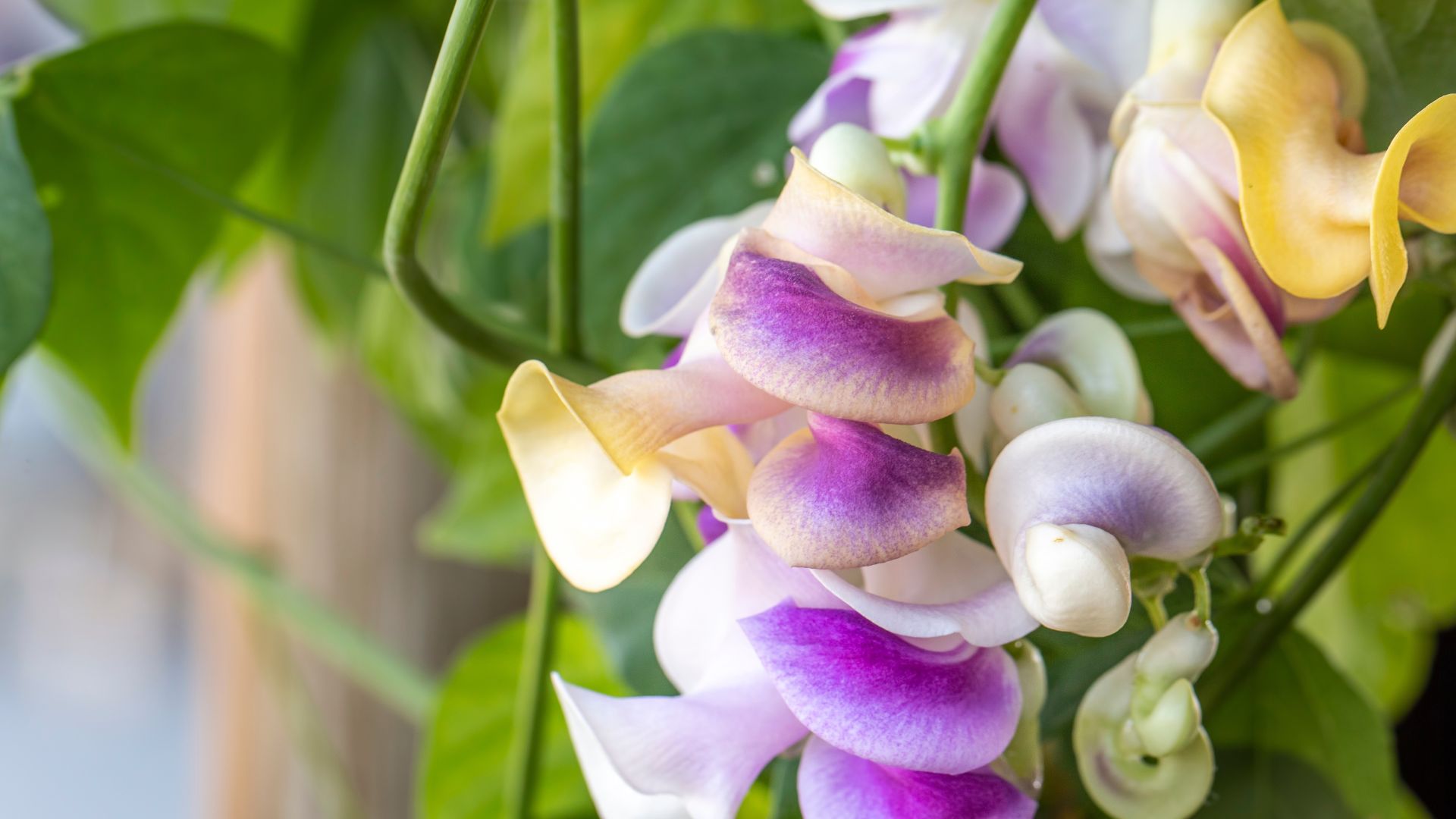
The incredible fragrant flowers of the snail vine look like translucent snails opening out into a swirl of colour. They love well-drained soil and full sun and take just six weeks to bloom.
Japanese Quince
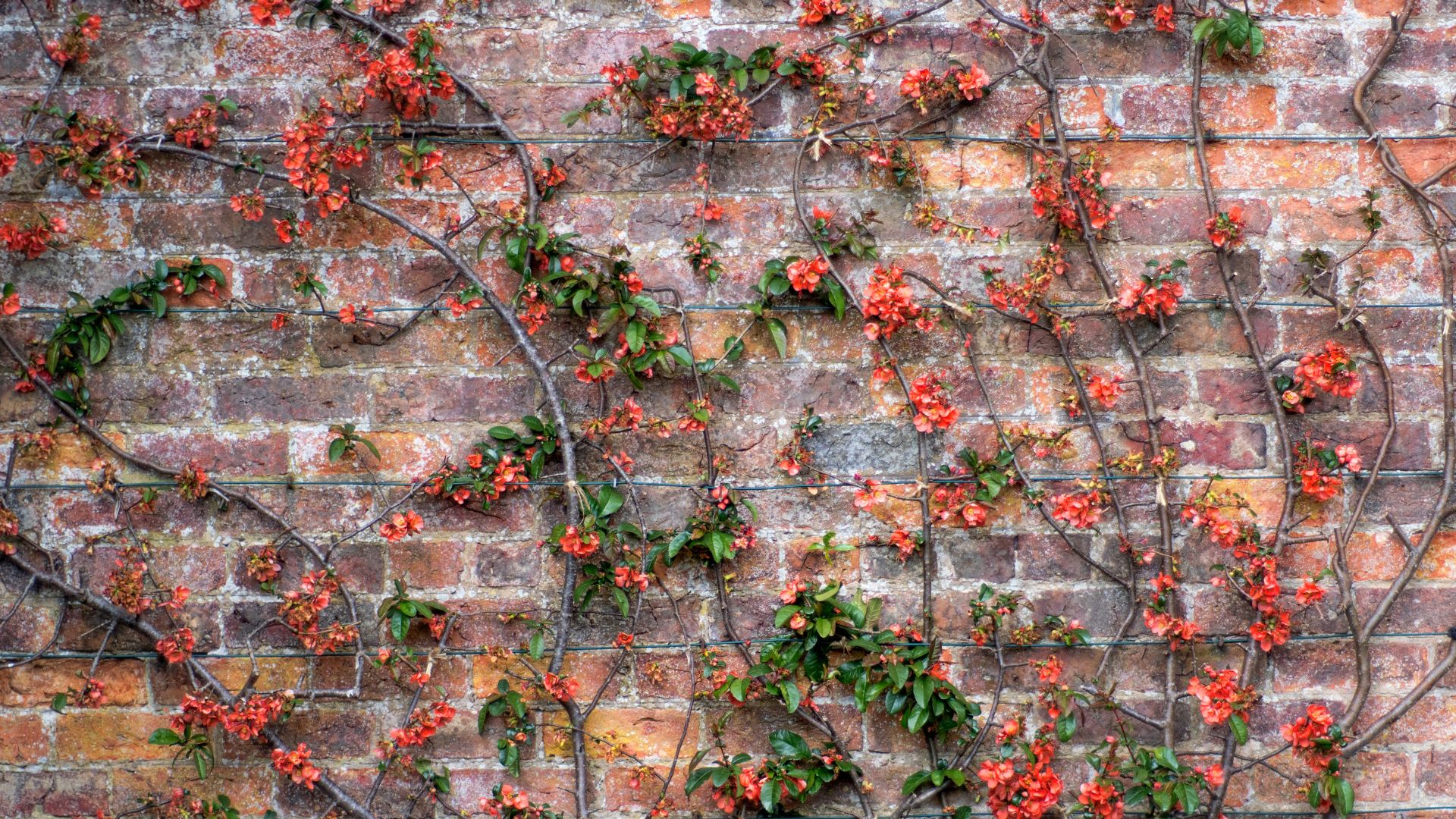
This fun shrub can be trained as a hedge or wall climber and bears fruit that’s great for making jams and jellies. Similar in appearance to the regular quince but much smaller, it’s best to harvest the fruit in autumn.
Curtain Creeper

One of the most striking creepers, this impressive plant creates a curtain of vibrant green wherever it grows. With slender stems that hang down, it looks amazing tumbling over the sides of buildings and is easy to propagate from cuttings.
Cat’s Claw Vine
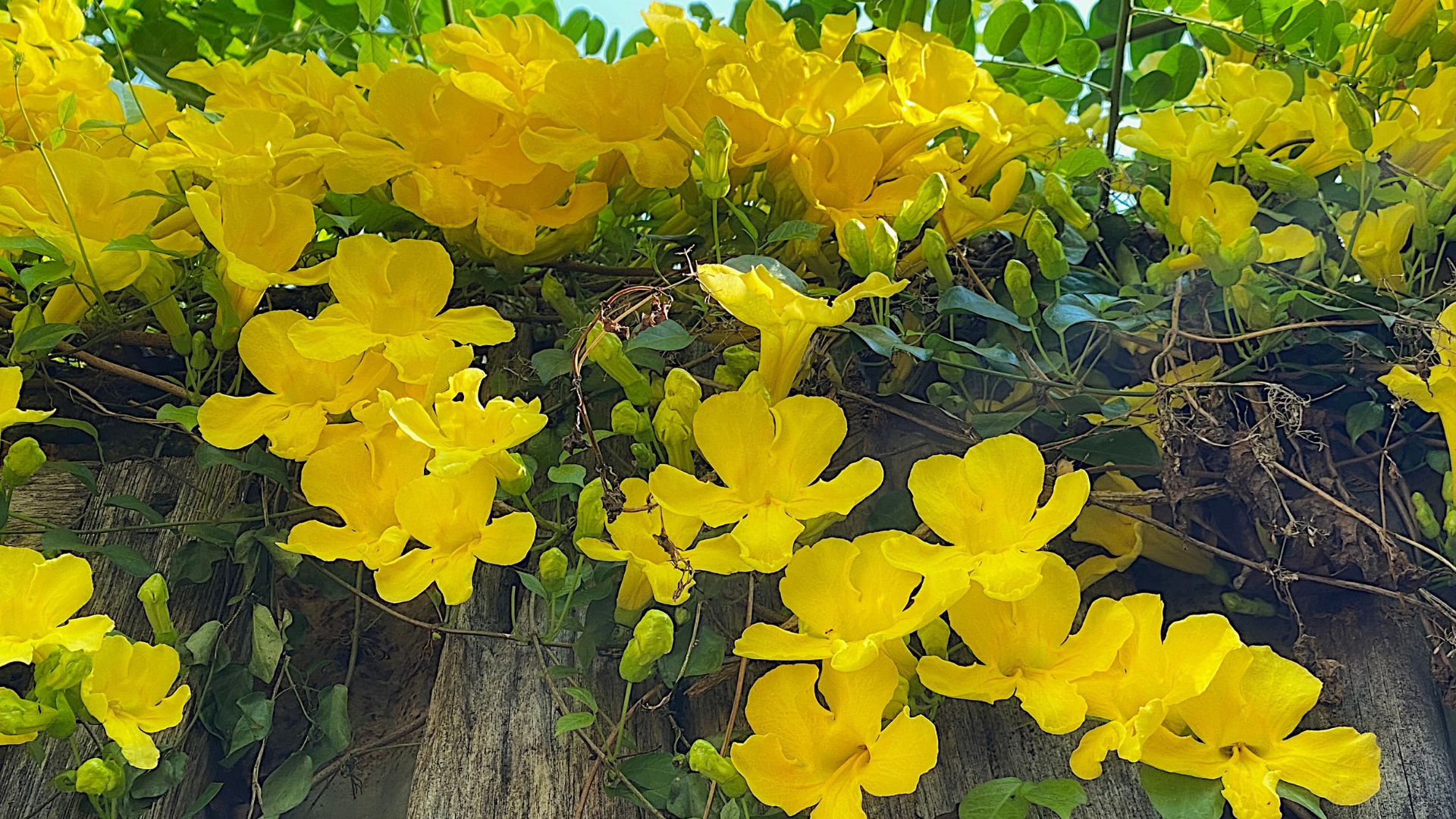
It only takes two to three months for the cat’s claw to grow to full size, making it an ideal option if you’ve just moved house and want to transform the garden immediately. The plant features masses of bold yellow flowers that appear during late spring.
English Ivy
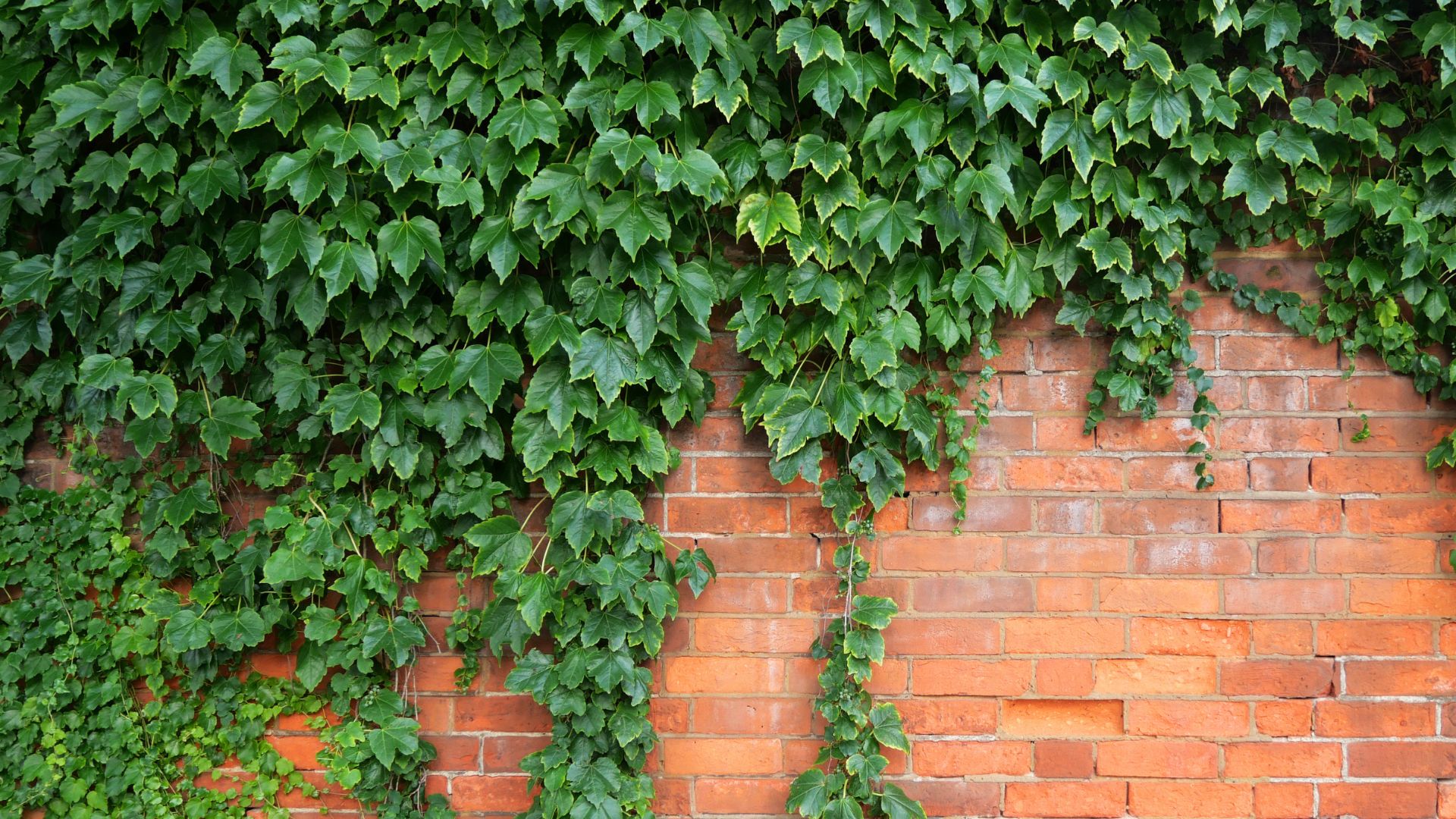
Since it’s relatively easy to care for and looks amazing English Ivy has become popular for growing along house front facades. It’s also one of the only climbing plants that really thrives in the shade so will suit a lot of gardens in the UK. It's pretty affordable and high-yield, so planting them is a great budget garden idea. Avoid if you have clay soil.
Firethorn
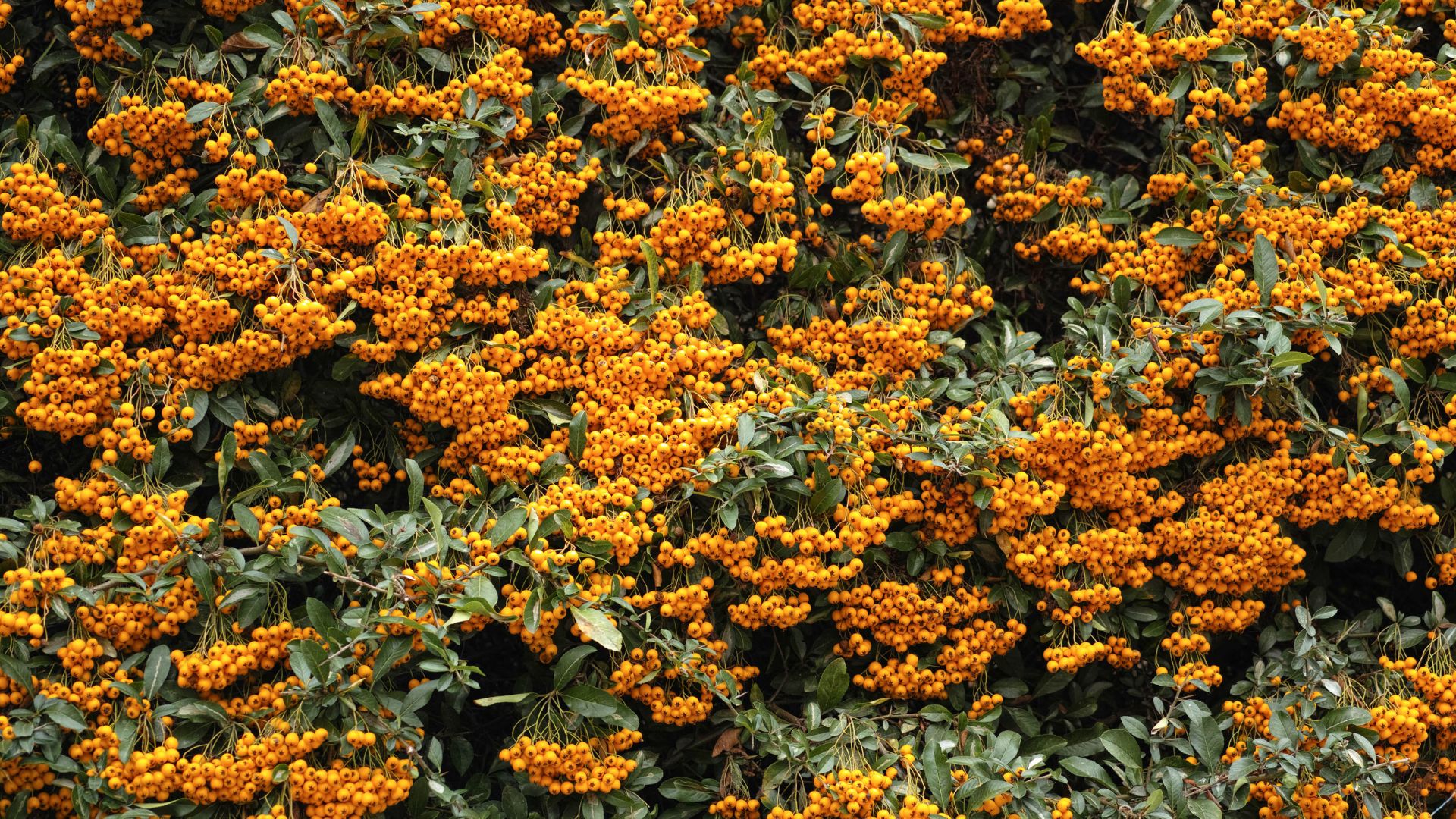
This large thorny shrub has an abundance of orange-red berries that create a dramatic display and attract a wide variety of birds. Best grown in full sun, the firethorn tolerates most soil types and can be trained to climb.
Garlic Creeper
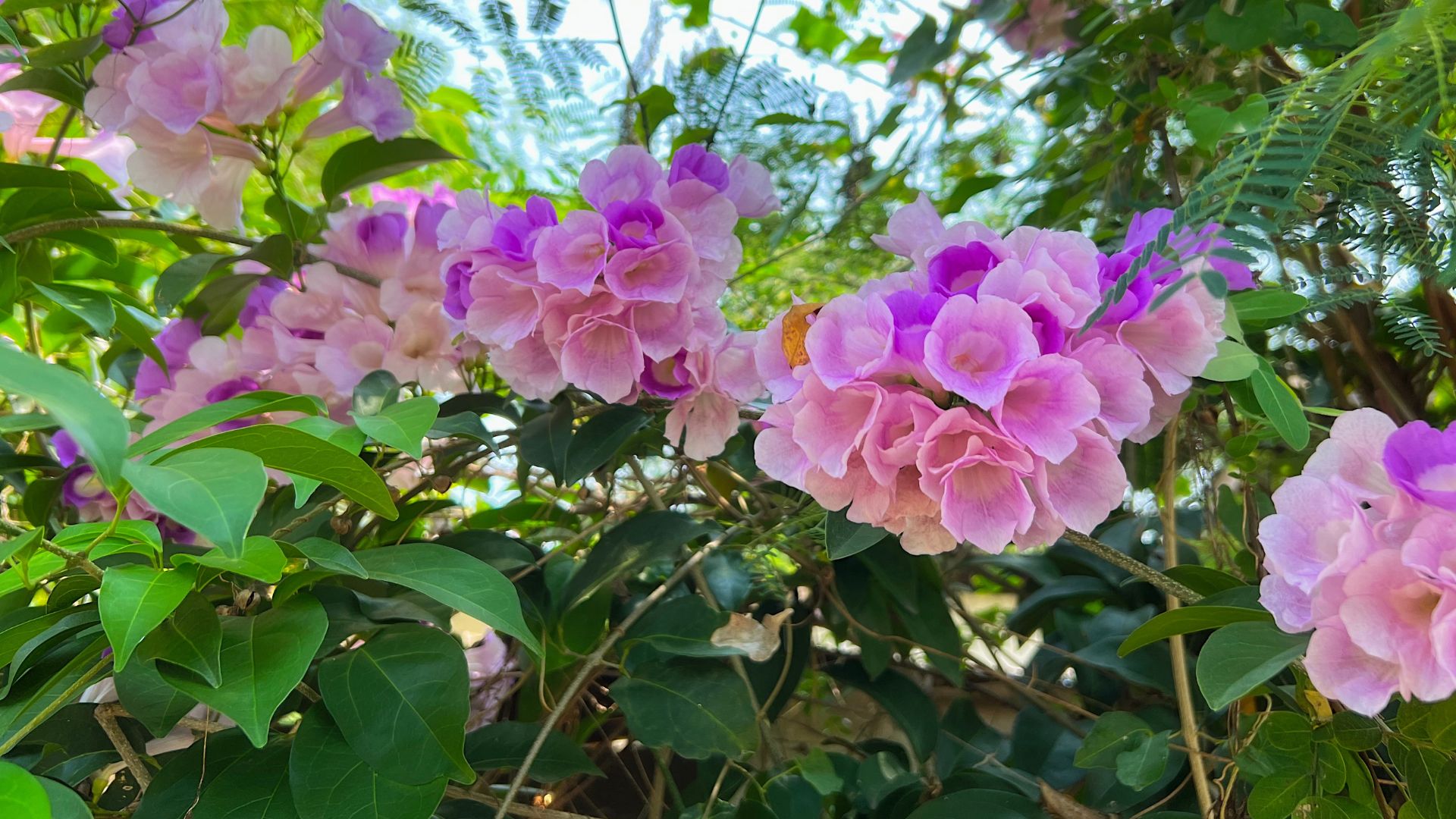
With bright green leaves, this perennial evergreen flowering vine requires trellis, fencing, or arbours to grow along. It’s one of the most rewarding vines since it produces continuous flowers that change colour fading from purple to white over time.
Campsis
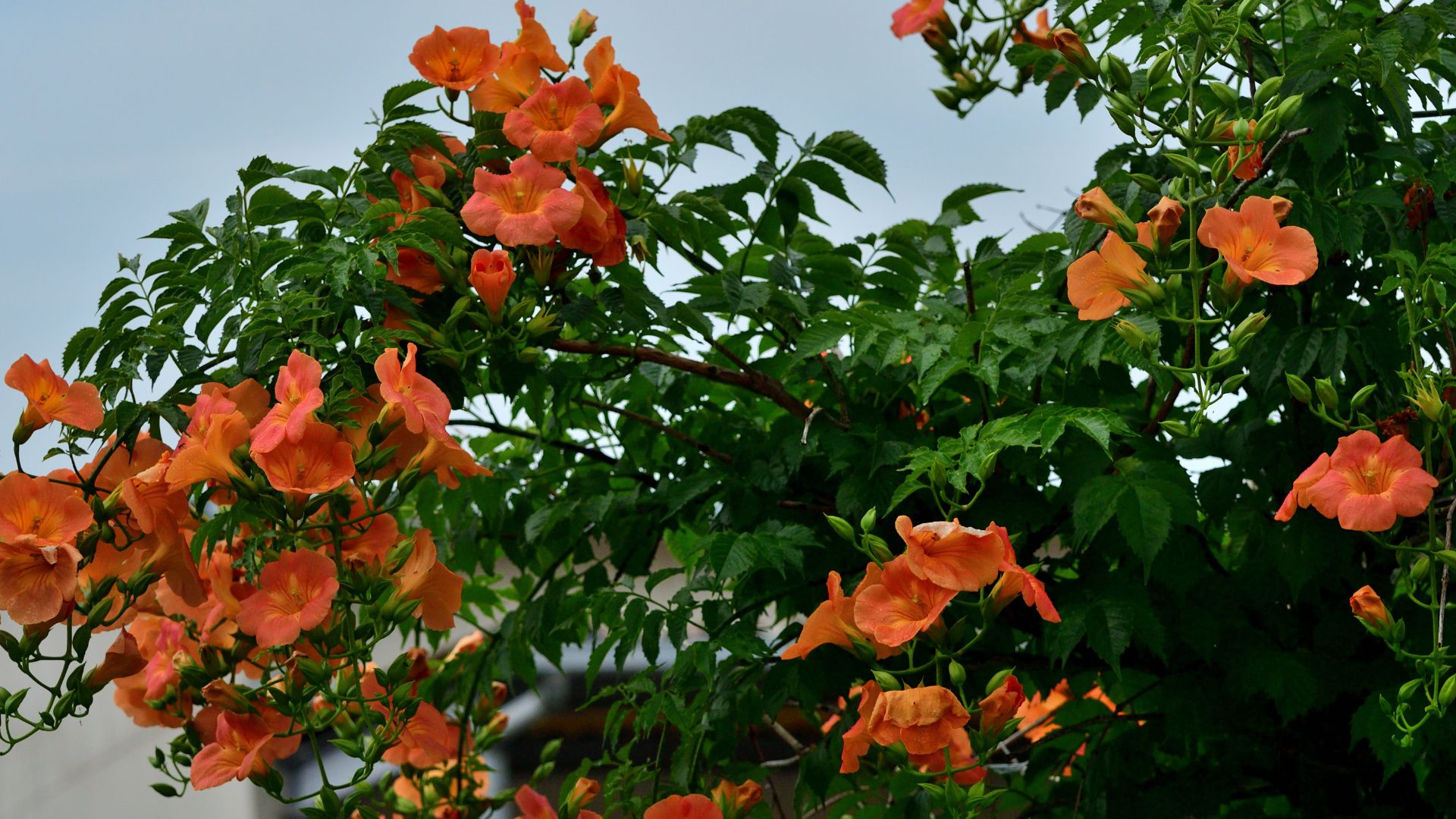
Part of the trumpet vine family, campsis has golden-yellow trumpet-shaped flowers that will last for months. Fully hardy they like sunny walls to grow along but can also be grown in pots.

Lydia is a nomadic travel writer and solo travel expert with two decades of journalistic experience (including a nine-year stint as a fashion and beauty editor and five as a lifestyle director).
An intrepid explorer, Lydia writes about her adventures for The Sunday Times, Condé Nast Traveler, The Guardian, BBC Travel, Harper's Bazaar, ELLE, Marie Claire US, The London Standard, woman&home, Good Food, Women’s Health, Australia's Body+Soul and easyJet Traveller.
-
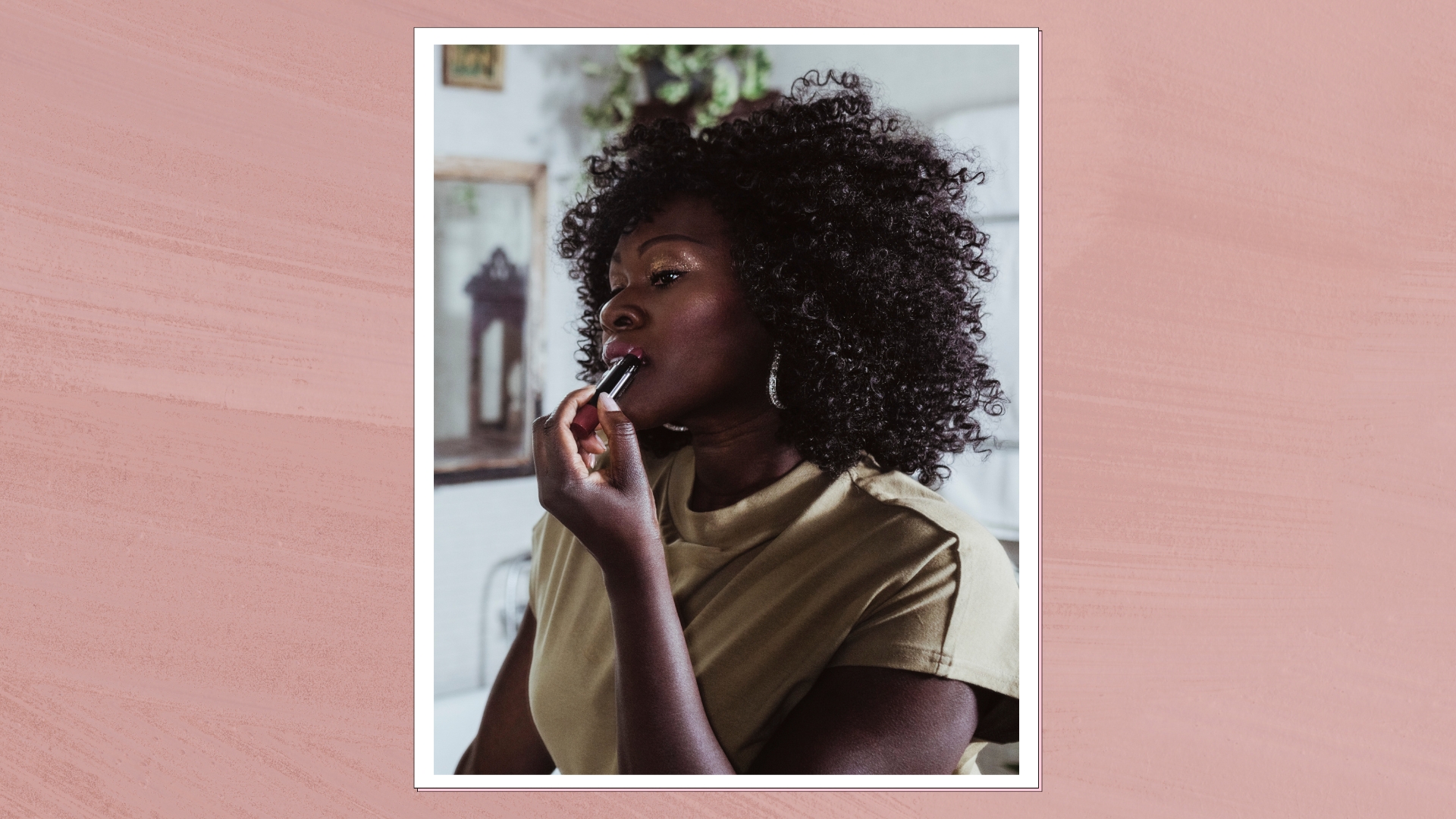 Lip contouring sounds a bit much, but this modern makeup technique is the 'soft' way to cheat a fuller pout
Lip contouring sounds a bit much, but this modern makeup technique is the 'soft' way to cheat a fuller poutThink about how you use your favourite bronzer, then apply the same principle to your lips - easy!
By Naomi Jamieson
-
 Kate Middleton declares baker boy hats back for 2025 in new Love, Actually-esque outfit
Kate Middleton declares baker boy hats back for 2025 in new Love, Actually-esque outfitThe Princess of Wales’s signature style is all about timelessness but that doesn’t mean that she never gets on board with trends.
By Emma Shacklock
